
Can you imagine the world today without smartphones?
Thanks to these useful devices, people can speak to each other regardless of existing distance or time barriers.
In recent years, texting and instant messaging have surpassed phone calls in popularity—but knowing how to communicate over the phone is still an essential skill!
As a language learner, you should familiarize yourself with the most common Bulgarian telephone phrases for effective communication. To give you a headstart, BulgarianPod101 has prepared this in-depth overview of key phrases and dialogue examples.
After studying this extensive list of Bulgarian phone call words and phrases, you’ll no longer have to be afraid of the language barrier when picking up the phone. Knowing these phrases will give you the confidence you need to have a fulfilling conversation with any native Bulgarian speaker who may call: a friend, a neighbor, a landlord, or even an employer!
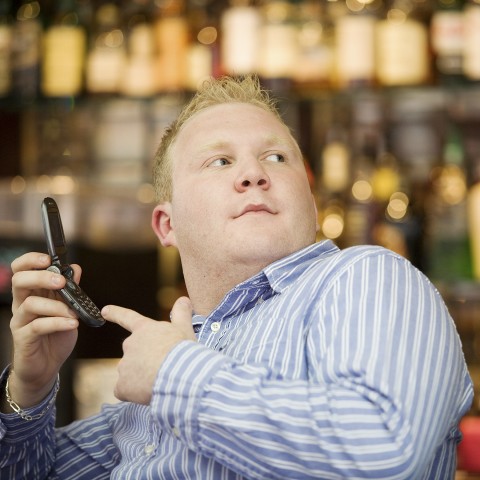
 Table of Contents
Table of Contents
- Useful Words and Phrases for Your Phone Call
- Beginning the Phone Conversation
- Phone Conversation Parts
- Ending a Phone Call
- Sample Phone Conversations
- How BulgarianPod101 Can Help You Learn the Bulgarian Language
1. Useful Words and Phrases for Your Phone Call
You might find it helpful to start by learning the basic words, phrases, and terminology related to phone calls. Take a look:
| Bulgarian | Pronunciation | English |
| телефон | telefon | phone |
| мобилен телефон | mobilen telefon | mobile phone |
| смартфон | smartfon | smartphone |
| батерия | bateria | battery |
| зарядно | zaryadno | charger |
| телефонът звъни | telefonat zvani | the phone is ringing |
| вдигам телефона | vdigam telefona | to pick up the phone |
| говоря по телефона | govorya po telefona | to talk on the phone |
| свързвам се по телефона | svarzvam se po telefona | to connect by phone |
| обаждам се по телефона | obazhdam se po telefona | to call on the phone |
| приключвам разговора | priklyuchvam razgovora | to end the conversation |
| затварям телефона | zatvaryam telefona | to ring off / to hang up |
| зареждам телефона | zarezhdam telefona | to charge the phone |
| оставям съобщение | zatvaryam telefona | to leave a message |
2. Beginning the Phone Conversation
Do you know what to say after picking up the phone to a Bulgarian speaker? Let’s start with the very first phrases you could say and what you should expect in reply.
The first phrase after picking up the phone
Informal Bulgarian phone phrases
| Bulgarian | Pronunciation | English |
| Ало! | Alo! | Hello! |
| Моля! | Molya! | Hello! |
| Да, моля! | Da molya! | Hello! |
| Ало, кой е? | Alo koy e? | Hello, who is this? |
| Ало, кой се обажда? | Alo, koy se obazhda? | Hello, who’s calling? |
Formal Bulgarian phone phrases
| Bulgarian | Pronunciation | English |
| Добър ден, слушам! | Dobar den, slusham! | Good afternoon, I’m listening! |
| Компания Графити, добър ден! | Kompaniya Grafiti, dobar den! | Graffiti Company, good afternoon! |
| Компания Графити, с какво мога да Ви бъда полезен/полезна? | Kompaniya Grafiti, s kakvo moga da Vi bada polezen/polezna? | Graffiti Company, what can I do for you? |
Please note that the masculine and feminine forms are different in that last question. Here are the individual phrases, for your convenience:
- Компания Графити, с какво мога да Ви бъда полезен?
Kompaniya Grafiti, s kakvo moga da Vi bada polezen?
Graffiti Company, what can I do for you?
– when the speaker is male
- Компания Графити, с какво мога да Ви бъда полезна?
Kompaniya Grafiti, s kakvo moga da Vi bada polezna?
Graffiti Company, what can I do for you?
– when the speaker is female
Introducing yourself
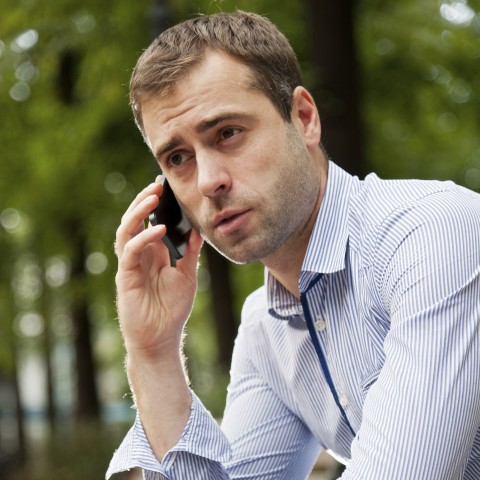
After the initial greeting, the next thing to do is introduce yourself. Let’s see the informal and formal ways to do this, respectively.
Presenting yourself (informal)
When you call your friend or someone else you’re closely acquainted with, here’s how to introduce yourself:
| Bulgarian | Pronunciation | English |
| Здравей! Обажда се Петър. | Zdravey! Obazhda se Petar. | Hello! Peter is calling. |
| Здрасти! Петър е. | Zdrasti! Petar e. | Hi! It’s Peter. |
- → Learn 10 Bulgarian lines you need for introducing yourself or our dedicated lesson on self-introductions on BulgarianPod101.com!
Presenting you and your company (formal)
| Bulgarian | Pronunciation | English |
| Добър ден! Казвам се Петър Петров и съм представител на компания Графити. | Dobar den! Kazvam se Petar Petrov i sam predstavitel na kompaniya Grafiti. | Good afternoon! My name is Petеr Petrov and I am a representative of Graffiti Company. |
Asking if it’s convenient to speak
Regardless of whether the conversation is formal or informal, it’s polite to ask whether the person you’re calling is available to speak or not. Here are some Bulgarian phone phrases to help you do this:
| Bulgarian | Pronunciation | English |
| Удобно ли е? | Udobno li e? | Is it convenient? |
| Удобно ли е да се чуем? | Udobno li e da se chuem? | Is it convenient to talk? |
| Имаш ли малко свободно време? | Imash li malko svobodno vreme? | Do you have some free time? |
| Можеш ли да ми отделиш пет минути? | Mozhesh li da mi otdelish pet minuti? | Can you give me five minutes? |
| Можеш ли да говориш сега или да се обадя по-късно? | Mozhesh li da govorish sega ili da se obadya po-kasno? | Can you talk now or shall I call you later? |
Now, let’s add some of these phrases to the greetings and introduction phrases we saw earlier:
(informal)
| Bulgarian | Pronunciation | English |
| Здравей! Обажда се Петър. Удобно ли е? | Zdravey! Obazhda se Petar. Udobno li e? | Hello! Peter is calling. Is it convenient? |
| Здравей, Петър! Да, удобно е. | Zdravey Petar! Da udobno e. | Hello Peter! Yes, it is convenient. |
| Здрасти! Петър е. Удобно ли е да се чуем? | Zdrasti! Petar e. Udobno li e da se chuem? | Hi! It’s Peter. Is it convenient to talk? |
| Здравей, Петър! Разбира се. | Zdravey Petar! Razbira se. | Hello Peter! Of course! |
(formal)
| Bulgarian | Pronunciation | English |
| Добър ден! Казвам се Петър Петров и съм представител на компания Графити. Можете ли да ми отделите пет минути? | Dobar den! Kazvam se Petar Petrov i sam predstavitel na kompaniya Grafiti. Mozhete li da mi otdelite pet minuti? | Good afternoon! My name is Petеr Petrov and I am a representative of Graffiti Company. Can you give me five minutes? |
| Здравейте, съжалявам, но в момента съм зает. Обадете се по-късно. | Zdraveiyte, sazhalyavam, no v momenta sam zaet. Obadete se po-kasno. | Hello, I’m sorry, but I’m busy right now. Please call later. |
3. Phone Conversation Parts
Now that you know what to say after picking up the phone and how to present yourself, it’s time to proceed with the different parts of the phone conversation.
Starting with the reason for the call
- If you’re returning a call, you could say:
(informal)
| Търсил си ме. | Tarsil si me. | You have called me. |
(formal)
| Търсили сте ме. | Tarsili ste me. | You have called me. |
After this phrase, the other person usually takes their turn to explain their reason for calling.
- If you’re calling someone for a certain reason, you could start with:
(informal)
| Обаждам се да ти кажа, че… | Obazhdam se da ti kazha, che… | I’m calling to tell you that… |
| Търся те, за да говоря с теб. | Tarsya te, za da govorya s teb. | I’m calling to talk to you. |
| Търся съвет за… | Tarsya savet za… | I’m looking for advice on… |
(formal)
| Обаждам се да Ви представя новия ни продукт… | Obazhdam se da Vi predstavya noviya ni produkt… | I am calling to present to you our new product… |
| Обаждам се да Ви попитам кога е удобно да се срещнем. | Obazhdam se da Vi popitam koga e udobno da se sreshtnem. | I am calling to ask you when it is convenient to meet. |
If you’re interested in how to invite a person somewhere, you can take a look at this lesson.
- If you’re not calling for a specific reason, but just to hear the person, you can say one of the following phrases:
(informal)
| Обаждам се само да те чуя. | Obazhdam se samo da te chuya. | I’m just calling to hear you. |
| Обаждам се само да те чуя как си. | Obazhdam se samo da te chuya kak si. | I’m just calling to hear how you are. |
This is typical only for informal situations.
Asking to speak to someone

If you understand that the person who picked up the phone is not the one you want to talk to, then you can ask:
(informal + formal)
| Мога ли да говоря с Иван? | Moga li da govorya s Ivan? | Can I talk to Ivan? |
| Търся Иван. | Tarsya Ivan. | I’m looking for Ivan. |
You could receive different answers to this request. Here are three possibilities:
| Разбира се, един момент, моля! | Razbira se, edin moment, molya! | Of course! One moment, please! |
| Съжалявам, в момента го няма. Обадете се след час. | Sazhalyavam, v momenta go nyama. Obadete se sled chas. | Sorry, he is not here at the moment. Please, call again in an hour. |
| Имате грешка, няма такъв. | Imate greshka, nyama takav. | There is a mistake, we don’t have such a person here. |
If you receive that last answer, you could ask whether you’ve dialed the correct phone number:
| Това 0877/523-642 ли е? | Tova nula osem sedem sedem pet dve tri shest chetri dve li e? | Is this 0877/523-642? |
| Не, набрали сте грешeн номер. Тук е 0877/523-652. | Ne, nabrali ste greshen nomer. Tuk e nula osem sedem sedem pet dve tri shest pet dve. | No, you dialed the wrong number. It is 0877/523-652. |
- → If you’re not yet confident in your ability to say or comprehend a phone number in Bulgarian, make sure you check out our lesson on Bulgarian numbers!
Then, you could apologize as follows:
| Извинете. | Izvinete. | Excuse me. |
Leaving a message
Now, let’s imagine that your interlocutor has said that the person you’re looking for is not currently there. They may ask you whether you would like to leave a message for them. Here’s a sample dialogue for you:
(formal)
| Съжалявам, в момента го няма. Искате ли да му предам нещо? | Sazhalyavam, v momenta go nyama. Iskate li da mu predam neshto? | Sorry, he is not here at the moment. Would you like to leave a message for him? |
| Да, ако обичате предайте му, че го е търсил Петър. | Da, ako obichate predayte mu, che go e tarsil Petar. | Yes, please tell him that Peter was looking for him. |
| Добре, ще му предам. | Dobre, shte mu predam. | Okay, I’ll tell him. |
| Благодаря. | Blagodarya. | Thank you! |
Asking someone to wait
Asking someone to wait during a phone call happens frequently in formal conversations. Here are some ways you might be asked to hold on when you call a company.
(formal)
| Изчакайте малко, ако обичате. | Izchakayte malko, ako obichate. | Wait a minute, please. |
| Един момент да проверя… | Edin moment da proverya… | Just a second to check… |
| Изчакайте така, докато Ви прехвърля… | Izchakayte taka, dokato Vi prehvarlya… | Please wait while I transfer you… |

Asking for clarification
Sometimes, due to connection issues or the language barrier, you might not understand what your interlocutor has said. How can you ask for clarification? Let’s see:
(formal)
| Извинете, можете ли да повторите? | Izvinete, mozhete li da povtorite? | Excuse me, can you repeat please? |
| Не Ви чух добре, бихте ли повторили? | Ne Vi chuh dobre, bihte li povtorili? | I didn’t hear you well, would you repeat? |
| Връзката е лоша и не Ви чух добре. | Vrazkata e losha i ne Vi chuh dobre. | The connection is bad and I didn’t hear you well. |
| Бихте ли повторили, ако обичате? | Bihte li povtorili, ako obichate? | Would you repeat if you may? |
| Разбира се. | Razbira se. | Of course. |
4. Ending a Phone Call
There are a few ways you can end your Bulgarian phone conversation. We’ll explore both informal and formal phrases below.

(informal)
| Дочуване! | Dochuvane! | See you soon! |
| Хайде, чао! | Hayde, chao! | Okay, bye! |
| Ще се чуем пак. | Shte se chuem pak. | We’ll talk again. |
| До скоро! | Do skoro! | See you soon! |
(formal)
| Много благодаря за информацията! Дочуване! | Mnogo blagodarya za informatsiyata! Dochuvane! | Thank you very much for the information! See you soon! |
| Благодаря, приятен ден! | Blagodarya, priyaten den! | Thank you, have a nice day! |
| Много благодаря за съдействието! Всичко най-добро! | Mnogo blagodarya za sadeystvieto! Vsichko nay-dobro! | Thank you very much for your cooperation! All the best! |
Please note that the word Дочуване! (Dochuvane!) is typical for ending a phone conversation. Although it’s translated as “See you soon!” its literal translation is “Hear you soon!”
- → You can find some more useful phone call phrases on our website!
5. Sample Phone Conversations
It’s time to see some sample phone conversations in Bulgarian. We’ve provided both an informal and a formal sample to give you a good idea of how to use the phrases you’ve learned so far.
Sample informal phone conversation
Imagine that a person calls his friend to invite him to a birthday lunch together at a restaurant. Let’s see how this phone dialogue might sound:
– Ало!
(Alo!)
Hello!
– Ало, Иване здравей. Петър е.
(Alo, Ivane zdravey. Petar e.)
Hello, Ivan! It’s Peter.
– Здравей, Петре, как си? Какво ново?
(Zdravey, Petre, kak si? Kakvo novo?)
Hello, Peter, how are you? What’s new?
– Добре съм. Всъщност ти се обаждам да те поканя на рожден ден в ресторант “Синчец” тази неделя. Ще празнуваме двамата. Разбира се, аз черпя.
(Dobre sam. Vsashtnost ti se obazhdam da te pokanya na rozhden den v restorant “Sinchets” tazi nedelya. Shte praznuvame dvamata. Razbira se, az cherpya.)
I am fine. In fact, I’m calling to invite you to my birthday party at the Sinchets Restaurant this Sunday. We will celebrate the two of us. Of course, my treat.
– О, звучи прекрасно. От колко часа?
(O, zvuchi prekrasno. Ot kolko chasa?)
Oh, that sounds great. What time?
– Какво ще кажеш за 17 ч. вечерта?
(Kakvo shte kazhesh za sedemnayset chasa vecherta?)
How about five p.m.?
– Тогава съм зает. Може ли да го оставим за 18 ч?
(Togava sam zaet. Mozhe li da go ostavim za osemnayset chasa?)
I’ll be busy at that time. Can we leave it for six p.m.?
– Разбира се, сега ще се обадя в ресторанта да резервирам маса.
(Razbira se, sega shte se obadya v restoranta da rezerviram masa.)
Of course, I am calling the restaurant to book a table.
– Благодаря много за поканата. До скоро!
(Blagodarya mnogo za pokanata. Do skoro!)
Thanks a lot for your invitation. See you soon!
– До скоро! Ще те чакам в неделя в 18 ч. пред ресторанта.
(Do skoro! Shte te chakam v nedelya v osemnadeset chasa pred restoranta.)
See you soon! I will be waiting for you on Sunday at six p.m. in front of the restaurant.
Sample formal phone conversation
Now, let’s imagine that Peter from the phone call above calls the restaurant to reserve a table. Let’s look at how this formal conversation might go:
– Ресторант “Синчец”, добър ден!
(Restorant Sinchets, dobar den!)
Sinchets Restaurant, good afternoon!
– Добър ден. Обаждам се да резервирам маса за двама за неделя.
(Dobar den. Obazhdam se da rezerviram masa za dvama za nedelya.)
Good afternoon. I’m calling to book a table for two for Sunday.
– Да, за колко часа?
(Da, za kolko chasa?)
Okay, at what time?
– За 18 часа.
(Za osemnayset chasa.)
At six p.m.
– Моля, изчакайте момент да проверя… Имаме две свободни маси за този час—едната на балкона, а другата вътре до прозореца. Коя предпочитате?
(Molya, izchakayte moment da proverya… Imame dve svobodni masi za tozi chas—ednata na balkona, a drugata vatre do prozoretsa. Koya predpochitate?)
Please, give me a moment to check… We have two available tables for that hour—one in the balcony and the other one inside by the window. Which one do you prefer?
– Предпочитам тази до прозореца.
(Predpochitam tazi do prozoretsa.)
I prefer the one by the window.
– Добре, отбелязвам. Вашето име?
(Dobre, otbelyazvam. Vasheto ime?)
Okay, I am noting it down. Your name?
– Петър Петров.
(Petar Petrov.)
Peter Petrov.
– Резервацията Ви е приета. Благодаря!
(Rezervatsiyata Vi e prieta. Blagodarya!)
Your reservation has been set up. Thank you!
– И аз благодаря. Приятен ден!
(I az blagodarya. Priyaten den!)
Thank you, too. Have a nice day!
– И на Вас! Дочуване!
(I na Vas! Dochuvane!)
You too! See you soon!
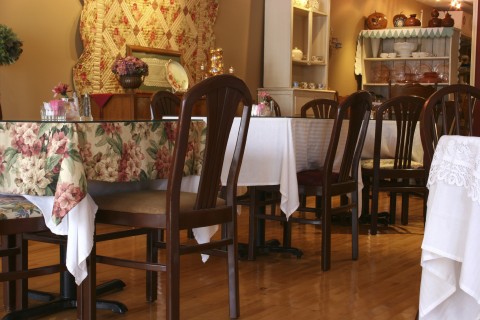
BulgarianPod101 has prepared the following lesson on making a phone call in Bulgarian, in case you’d like even more phrases and insight!
6. How BulgarianPod101 Can Help You Learn the Bulgarian Language
We hope that you found this detailed overview of Bulgarian telephone phrases helpful and that you’ve gained the confidence you need to handle phone calls like a native. Once you have the phrases memorized, you can start piecing them together to form unique conversations for any situation.
If you want to learn even more Bulgarian and gain access to study and practice materials, make sure to create your free lifetime account on BulgarianPod101.com.
To dive even deeper into the linguistic and cultural specifics, you can turn to our MyTeacher service for Premium PLUS members. This service allows you to choose a private Bulgarian teacher who can assist you, provide specialized learning materials, and review your work.
Finally, don’t hesitate to share your thoughts and feedback with us! Will these Bulgarian phone call expressions be enough to get you through your upcoming calls, or did we leave something out? We’ll get back to you at the earliest!

Bulgarian Filler Words: Start Speaking Like a Native

Fillers are those unnecessary words that people sometimes use without even realizing it. They’re usually associated with slang or lack of education. These parasitic words or expressions interrupt speech and sometimes make it more difficult to understand. The English language is full of filler words, but what about Bulgarian?
There are many Bulgarian filler words, too! BulgarianPod101 has prepared this extensive overview to get you acquainted with them, as you’ll encounter them often in your daily conversations with Bulgarians. It’s interesting to note that fillers in the Bulgarian language are influenced by modern language tendencies and change over time. For the purpose of this article, we’ll be covering some of the most common Bulgarian filler words used today.

 Table of Contents
Table of Contents
- What are filler words and why do we use them?
- The 10 Most Common Bulgarian Filler Words
- Filler Words in Business Jargon
- Cons of Filler Words
- How to Get Rid of Filler Words in Your Speech
- How BulgarianPod101 Can Help You Learn the Bulgarian Language
1. What are filler words and why do we use them?
If you’ve ever spoken with a Bulgarian, you’ve probably heard some words said so quickly that you didn’t understand their meaning. These filler words bear different meanings, and our goal is to help you better recognize and understand them so that you’ll be more prepared for real-life conversations.
It might sound strange, but filler words are multifunctional. People use them in different situations and for various purposes. Here are some of their most common functions and properties:
- ➢ These are parasite words that have no specific meaning. If you remove them from a sentence, it will become more clear and understandable.
➢ They do not change the meaning of the sentence.
➢ They help people express their emotions more succinctly.
➢ Filler words are sometimes used to give the speaker time to think about what to say next.
➢ They reveal a kind of linguistic weakness, and are usually used by people who would like to say much more than they actually can.
➢ They help the speaker gently approach delicate topics and predispose the listener to them.
➢ They are also used to emphasize important points and ideas.
➢ Filler words may be used to repeat the same idea again in different words.
Taking into account the various uses of filler words, it’s easier to understand why we’ve dedicated an entire article to them. Let’s now look at some specific filler words in Bulgarian and their English meanings.
2. The 10 Most Common Bulgarian Filler Words
#1
| Bulgarian | Literally | English Equivalent |
| Ами… (Ami…) | – | “Well…” |
You’ll hear this filler word quite often during conversations with Bulgarians. It’s usually placed at the beginning of the sentence, especially if the speaker is about to give a negative response and isn’t sure what to say next. It can be used before phrases like “I don’t know,” “I can’t,” “alright then,” etc. | ||
A: Здравей, свободен ли си днес следобед? Zdravey, svoboden li si dnes sledobed? “Hi, are you free this afternoon?” B: Ами, не знам още. Трябва да си проверя графика. Ami, ne znam oshte. Tryabva da si proverya grafika. “Well, I don’t know yet. I need to check my schedule.” A: Ами, добре тогава. Ще ти се обадя по-късно. Ami, dobre togava. Shte ti se obadya po-kasno. “Well, alright then. I’ll call you later.” | ||
#2
| Bulgarian | Literally | English Equivalent |
| Абе… (Abe…) | – | “Well…” |
Another frequently used filler in Bulgarian, абе (abe) is quite similar to the previous word we looked at and is placed at the beginning of a sentence or expression. While the previous one could go unnoticed, this filler is quite annoying and typically used in “low culture” speech. | ||
Абе, ти сега не ми ги разправяй на мен тези неща! Abe, ti sega ne mi gi razpravyay na men tezi neshta!“ Well, don’t tell these things to me!” / “I know better!” Абе, аз зная по-добре какво да правя. Abe, az znaya po-dobre kakvo da pravya. “Well, I know better what to do.” Абе, ти няма ли най-после да проумееш това! Abe, ti nyama li nay-posle da proumeesh tova! “Well, won’t you finally understand this!” | ||

#3
| Bulgarian | Literally | English Equivalent |
| Значи… (Znachi…) | – | “So…” / “Then…” |
This Bulgarian filler is used unintentionally by a speaker who is trying to explain something or describe a situation. It can be inserted at any point in a sentence. Note: The filler word значи should not be confused with the verb значи, which is translated in English as “means” for the third person singular. Be aware that this word, therefore, can be used either as a filler or as a word with actual meaning. | ||
Отивам значи вчера на магазина и купувам значи две бири. Otivam znachi vchera na magazina i kupuvam znachi dve biri. “So, I went to the store yesterday and so I bought two beers.” Значи днес не можеш да излезеш с мен на разходка? Добре, значи, ще отида сам. Znachi dnes ne mozhesh da izlezesh s men na razhodka? Dobre, znachi, shte otida sam. “So you can’t go out for a walk with me today? Okay, then I’ll go alone.” |
#4
| Bulgarian | Literally | English Equivalent |
| Нали… / Нали разбираш… (Nali… / Nali razbirash…) | “You understand…” | “You know…” / “You see…” |
These Bulgarian filler words are quite common and are normally used when the speaker is searching for affirmation or confirmation from the listener. Note that the filler нали can be replaced by the previous filler значи, as they have nearly the same meaning. | ||
Нали разбираш, не ми беше много лесно. Nali razbirash, ne mi beshe mnogo lesno.“You see, it wasn’t very easy for me.” Разхождам се нали в парка и изведнъж нали пред мен застава Силвестър Сталоун. Razhozhdam se nali v parka i izvednazh nali pred men zastava Silvestar Staloun.“You know, I’m walking in the park, and suddenly, you know, Sylvester Stallone is standing in front of me.” |
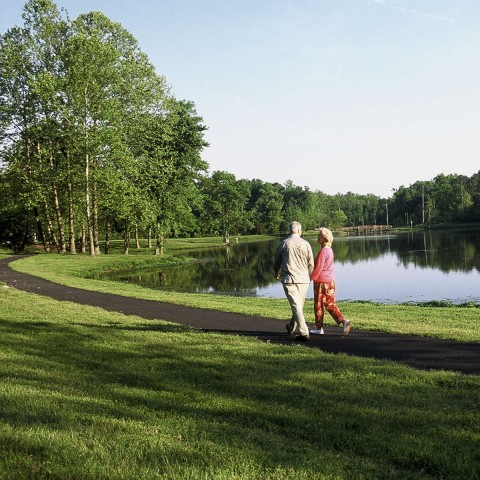
#5
| Bulgarian | Literally | English Equivalent |
| Виж… / Виж сега… (Vizh… / Vizh sega…) | “Look…” / “Look now…” | “Look…” / “Here’s the thing…” |
Both of these Bulgarian fillers are used to attract the attention of the listener. They’re usually placed at the beginning of the sentence in order to emphasize the importance of what’s about to be said. | ||
Виж, не искам да те обидя. Vizh, ne iskam da te obidya.“Look, I don’t want to offend you.” Виж сега, минаваш по този път, завиваш наляво и си на точното място. Vizh sega, minavash po tozi pat, zavivash nalyavo i si na tochnoto myasto.“Here’s the thing, you should go this way, then turn left and you’ll be in the right place.” |
#6
| Bulgarian | Literally | English Equivalent |
| Всъщност… / Фактически… (Vsashtnost… / Fakticheski…) | “In fact…” | “Actually…” |
While these Bulgarian fillers are perfectly fine to use in speech, they can become irritating to the listener if used too much. These fillers cannot be used at the end of a sentence; the speaker adds them when he would like more time to form his thoughts. | ||
Аз всъщност исках да кажа друго. Az vsashtnost iskah da kazha drugo.“I actually wanted to say something else.” Фактически до сега нищо не съм постигнал. Fakticheski do sega nishto ne sam postignal.“In fact, I have not achieved anything so far.” |
#7
| Bulgarian | Literally | English Equivalent |
| Сещаш се… (Seshtash se…) | “You guess…” | “You know…” |
This filler aims to keep the other party interested during a conversation. It’s very close to нали / нали разбираш above. By using it, the speaker wants to make the other party empathetic to what they’re saying and to provoke more interest in it. Using this filler too often is indicative of a low culture of speaking. | ||
Here’s how this word might be used in a phone conversation: Вчера бях, сещаш се, в ресторанта и там дойде управителят и сещаш се какво ми каза—че съм уволнен. Vchera byah, seshtash se, v restoranta i tam doyde upravitelyat i seshtash se kakvo mi kaza—che sam uvolnen.“Yesterday I was, you know, in the restaurant and the manager came there and, you know, what he told me—that I am fired.” |
You might be interested in studying more about how to make a phone call in Bulgarian.

#8
| Bulgarian | Literally | English Equivalent |
| Викам… (Vikam…) | “I shout…” | “I intend to…” / “I tell…” |
This Bulgarian filler is typically used to replace the verbs смятам (smyatam) – “I intend” and казвам (kazvam) – “I tell.” | ||
Викам да направя една баница. Vikam da napravya edna banitsa.“I plan to make banitsa.” Обаждам се аз по телефона на мой приятел и му викам да излезем заедно, а той ми вика, че не може. Obazhdam se az po telefona na moy priyatel i mu vikam da izlezem zaedno, a toy mi vika, che ne mozhe.“I called my friend and told him to go out together, and he told me that he can’t.” |
#9
| Bulgarian | Literally | English Equivalent |
| Човек… / мен… (Chovek… / Man…) | “Human” / “Man” | “Man…” |
These two filler words are equivalent in meaning and are comparatively new, used mainly by young adults and teenagers in Bulgaria. It’s obvious that the filler word мен is the transliteration of the English filler “man,” which probably entered the Bulgarian vernacular via American movies. Both fillers are used to address the interlocutor. * Note that the filler word мен should not be confused with the personal pronoun мен.* Note also that there are regional variations with the same semantic meaning. For example, people in Sofia could use the filler word брат (“bro” / “brother”), while people in Plovdiv prefer the expression майна (“dude”). | ||
Човек, да знаеш какво ми се случи вчера! Chovek, da znaesh kakvo mi se sluchi vchera!“Man, you know what happened to me yesterday!” Вървя си по пътя, мен, и изведнъж чувам познат глас зад мен. Varvya si po patya, men, i izvednazh chuvam poznat glas zad men.“I’m walking down the road, man, and suddenly I hear a familiar voice behind me.” |
- While we’re on the topic of slang, here’s a list of the most common texting slang.
#10
| Bulgarian | Literally | English Equivalent |
| В смисъл / тоест… (V smisal / toest…) | “I mean…” / “In other words…” | – |
These Bulgarian filler words are similar to всъщност and фактически. They’re used to make something more clear, but when they’re used too often, it can become irritating for the listener. | ||
A:Трябва да започнете да учите повече! Tryabva da zapochnete da uchite poveche!“You have to study more!” B:В смисъл? V smisal?“What do you mean?” A:В смисъл, че ви предстоят изпити. V smisal, che vi predstoyat izpiti.“I mean that you will have to take exams soon.” Вчера излизам от вкъщи, тоест не на разходка, а до магазина и разбирам, че парите не са в мен. Vchera izlizam ot vkashti, toest ne na razhodka, a do magazina i razbiram, che parite ne sa v men.“Yesterday I left my house, i.e. not for a walk, but to go to the store, and I found out that the money is not with me.” |

- BulgarianPod101 can help you prepare for your approaching Bulgarian proficiency exam with thousands of useful lessons.
Bonus Filler Word
| Bulgarian | Literally | English Equivalent |
| такова… (takova…) | “this” / “that” | – |
We present here the most universal Bulgarian filler word you’ll hear in your conversations with Bulgarians. Locals can use this filler in place of any word they’re struggling to remember. | ||
In place of a noun Трябва ми такова… сол. Tryabva mi takova… sol.“I need that… salt.” In place of a verb Излизам да таковам… да играя. Izlizam da takovam… da igraya.“I go out to do this… to play.” * Note that when it replaces a verb, this filler word follows the rules of verb conjugation. In place of an adjective Тя е толкова такава… хитра. Tya e tolkova takava… hitra.“She is so this… cunning.” * Note that when it replaces an adjective, this filler word declines differently depending on the gender of the noun. |
- To limit your use of this filler, we recommend learning the 50 most common Bulgarian adjectives on BulgarianPod101.com.
3. Filler Words in Business Jargon
It’s interesting to note that some of the filler words in spoken Bulgarian have been influenced by the business jargon. We’ve already described two of them: всъщност and фактически, which are equivalent in meaning.
Bulgarian business jargon contains business or technical terms as well as foreign words. Some more examples of Bulgarian filler words taken from business jargon include:
#1
| Bulgarian | Literally | English Equivalent |
| Буквално… (Bukvalno…) | “Literally…” | “Literally…” |
Това буквално означава да се преместиш в друга държава. Tova bukvalno oznachava da se premestish v druga darzhava.“This literally means moving to another country.” |
#2
| Bulgarian | Literally | English Equivalent |
| Така да се каже… (Taka da se kazhe…) | “So to speak…” | “So to speak…” |
Налага се, така да се каже, да направим голяма промяна. Nalaga se, taka da se kazhe, da napravim golyama promyana.“We have to make a big change, so to speak.” |
#3
| Bulgarian | Literally | English Equivalent |
| Практически… (Prakticheski…) | “Practically…” | “Practically…” |
Той е практически навсякъде. Toy e prakticheski navsyakade.“He is practically everywhere.” |

BulgarianPod101 will help you sound like a native Bulgarian speaker with the following list of essential idioms.
4. Cons of Filler Words
While using the occasional filler in Bulgarian can help you buy time to organize your thoughts, they can easily become a bad habit. Filler words add no value to a sentence, and they also make speech or writing more difficult to understand by interrupting its flow.
If you find yourself using fillers unintentionally, it’s a good idea to learn how to limit their use in your everyday life. Which brings us to our next section…
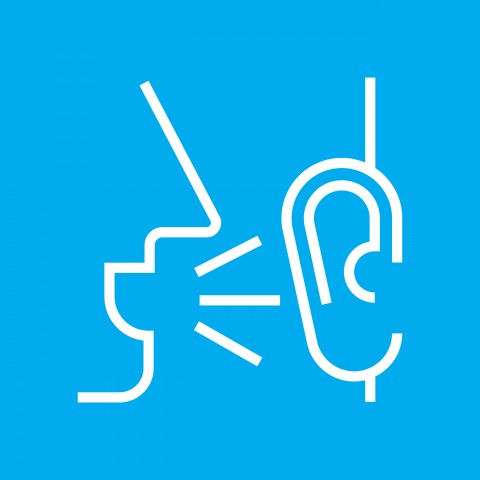
5. How to Get Rid of Filler Words in Your Speech
When using filler words becomes a habit, it’s difficult (but not impossible) to stop. Just don’t give up! There are some techniques that can help:
- Record yourself speaking: Listen to your speech to find out how many filler words you use and try to make another recording without them. This practical exercise has to be repeated often to remove the bad habit, especially if you’re planning to speak with a really important person.
- Don’t speak too much: Try to form your thoughts with fewer words than usual. It’s more important to speak clearly and get to the point.
- Keep silent for a few seconds: It’s better to make a pause in speech while thinking than to fill the time with unnecessary expressions.
Make a jar or bottle for fines: Put a coin inside every time you catch yourself using a filler word. This will motivate you to use them less often.
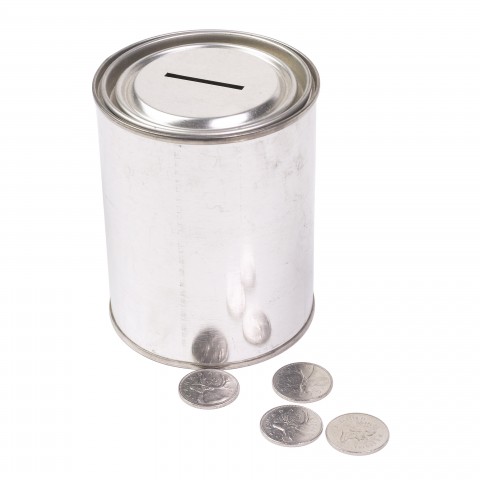
Feeling ambitious now? BulgarianPod101 encourages you to try out the following list of language learning goals for the month.
6. How BulgarianPod101 Can Help You Learn the Bulgarian Language
We hope that this Bulgarian conversation filler words overview will help you recognize and understand fillers in your conversations with Bulgarians.
It’s a good idea to get familiar with this Bulgarian filler words list so that you can sound more like a native speaker and better understand conversations. If you would like to advance your Bulgarian language knowledge and practice with a private Bulgarian teacher, you can take advantage of BulgarianPod101’s MyTeacher service for Premium PLUS members.
We’ll be glad to hear your feedback about this article. Please don’t hesitate to share your thoughts with us in the comments!

Bulgarian Love Phrases: Say “I Love You,” in Bulgarian

Maybe you remember that old Beatles song All You Need is Love.
It seems to be true, because every single person—from little babies to old men or women—needs to love and be loved by someone. But while giving and receiving love is important, so is knowing how to express that love. Doing this properly can work miracles in your life.
Does your potential love interest or spouse happen to be a native Bulgarian speaker? Then you’re in the right place!
In this detailed overview of how to say “I love you,” in Bulgarian, we’ll help you express your true feelings in your partner’s mother tongue. Whether your goal is to make an attractive Bulgarian fall in love with you or to strengthen the bond you have with your partner, these Bulgarian phrases about love will help you navigate through each phase of your relationship.
The best part? Learning love phrases in Bulgarian is just the beginning. Having a boyfriend or girlfriend who speaks the language might inspire you to continue your studies! And having a romantic partner to practice with can make the experience that much more exciting and fulfilling.
What are you waiting for? It’s time to sweep your partner off their feet!
 Table of Contents
Table of Contents
- Confess Your Affection: Pick-up Lines and More
- Fall in Deeper: “I Love You,” and More
- Take it One Step Further: “Will You Marry Me?” and More
- Endearment Terms
- Must-know Love Quotes
- Building a Love Dialogue
- How BulgarianPod101 Can Help You Learn the Bulgarian Language
1. Confess Your Affection: Pick-up Lines and More
The first thing you need to know is how to confess your affection. In this chapter, we’ll give you tips and phrases to help you…
- …introduce yourself in Bulgarian.
- …invite your love interest on a first date.
- …make a good impression on your date.
- …give a compliment to show them you really care.

Let’s start with the basics:
- Здравей, как се казваш?
Zdravey, kak se kazvash?
Hello, what’s your name?
- Казвам се Джон и съм от Англия.
Kazvam se John i sam ot Angliya.
My name is John and I’m from England.
In the phrase above, you can replace John and England with your own name and home country. Need some help? You can probably find the Bulgarian name of your country in our World Countries vocabulary list.
Next, ask him or her what they do for a living.
- Какво работиш?
Kakvo rabotish?
What’s your job?
Now, you can tell him/her about your occupation. Here’s an example:
- Аз съм учител/ка по английски.
Az sam uchitel/ka po angliyski.
I am an English teacher.
Simply replace English teacher with your own profession. You can find a list of 20 Common Bulgarian Words for Occupations on BulgarianPod101.com.
Another good question to ask is:
- Какво обичаш да правиш в свободното си време?
Kakvo obichash da pravish v svobodnoto si vreme?
What do you like to do in your free time?
To answer this question yourself, you can say: Обичам да + your hobby. For example:
- Обичам да се разхождам в парка.
Obicham da se razhozhdam v parka.
I like walking in the park.
In this case, you might find our list of Bulgarian Vocabulary for Hobbies very helpful!
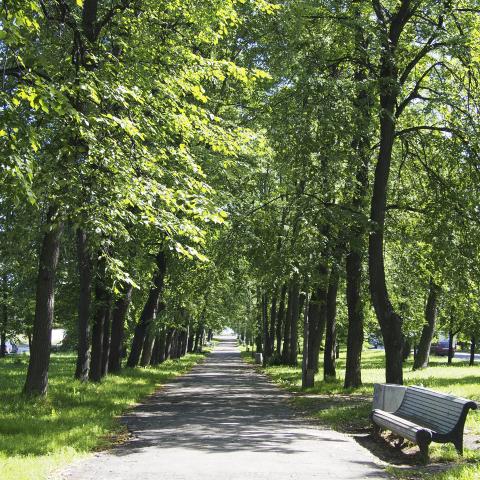
It’s time to become more direct. Let’s try this:
- Мога ли да те поканя на среща?
Moga li da te pokanya na sreshta?
Can I invite you on a date?
We believe that the answer you’ll get will be:
- Разбира се, с удоволствие!
Razbira se, s udovolstvie!
Of course, with pleasure!
Now, don’t forget to give some Bulgarian compliments to show you’re really interested in this relationship.
- Изглеждаш прекрасно!
Izglezhdash prekrasno!
You look great!
- Толкова си красива! (for a woman)
Tolkova si krasiva!
You are so beautiful!
You can choose from this list of the Top 15 Bulgarian Compliments You Always Want to Hear to surprise your new Bulgarian friend.
Sending a reminder about the date via text or email
To make sure that the person you’ve invited didn’t forget about the date, you can send them a short reminder in a text or email. Here’s a sample reminder you could use:
- Здравей, как си? Днес ще те чакам в 18 ч.
Zdravey, kak si? Dnes shte te chakam v 18 chasa.
Hello, how are you? Today, I will be waiting for you at 6 p.m.
If you would like to be more romantic, you could send the following:
- Здравей, не спирам да мисля за нашата среща. Нямам търпение да се срещнем! До 18 ч.
Zdravey, ne spiram da mislya za nashata sreshta. Nyamam tarpenie da se sreshtnem! Do 18 chasa.
Hi, I keep thinking about our meeting. I can’t wait to meet you! Until 6 p.m.
2. Fall in Deeper: “I Love You,” and More

Learning how to say “I love you,” in the Bulgarian language will be a huge step forward in your relationship. As you fall more deeply in love with someone, you begin to experience an array of emotions. While it would be impossible to include phrases for every feeling you might have, we’ve listed several romantic phrases in Bulgarian that you can use to express your love and continued interest.
- Много ми харесваш!
Mnogo mi haresvash!
I like you very much!
- Какви прекрасни очи имаш!
Kakvi prekrasni ochi imash!
What beautiful eyes you have!
- Обичам те!
Obicham te!
I love you!
- Мога ли да те целуна?
Moga li da te tseluna?
Can I kiss you?
- Липсваше ми!
Lipsvashe mi!
I missed you!
- Не мога без теб!
Ne moga bez teb!
I cannot live without you!
3. Take it One Step Further: “Will You Marry Me?” and More
A romantic relationship may become so strong that both parties desire to get married. This is an important step in life that one should consider before leaping ahead…but if you believe that you’re on the right track and that this is the person you’d like to bind your destiny to, here are the phrases you need to learn:
- Искам децата ми да приличат на теб!
Iskam detsata mi da prilichat na teb!
I want my children to look like you!
- Искам да остареем заедно!
Iskam da ostareem zaedno!
I want us to grow old together!
This is when a man might make his marriage proposal:
- Ще се омъжиш ли за мен?
Shte se omazhish li za men?
Will you marry me?
Or, if the woman proposes to the man:
- Ще се ожениш ли за мен?
Shte se ozhenish li za men?
Will you marry me?
- Нека създадем нашето общо бъдеще!
Neka sazdadem nasheto obshto badeshte!
Let’s create our common future!

4. Endearment Terms
All around the world, couples tend to address each other with cute pet names or terms of endearment. There are several common endearment terms in Bulgarian, some quite romantic and others more lighthearted. See our lists below to learn the pronunciation of “my love” in Bulgarian and many other Bulgarian terms of endearment.
Classic endearment terms
- Скъпи (Skapi) – Honey [for a man]
- Скъпа (Skapa) – Honey [for a woman]
- Любими (Lyubimi) – Darling [for a man]
- Любима (Lyubima) – Darling [for a woman]
- Мили (Mili) – Dear
- Мила (Mila) – Dear
- Любов моя (Lyubov moya) – My love
- Обич моя (Obich moya) – My love
- Щастие мое (Shtastie moe) – My happiness
- Съкровище (Sakrovishte) – Treasure
- Принцесо (Printseso) – Princess [for a woman]
- Бебче (Bebche) – Baby
Animal-based endearment terms
- Зайче (Zayche) – Bunny
- Слонче (Slonche) – Diminutive for “elephant”
- Коте (Kote) – Kitten
- Писе (Pise) – Kitty
- Жабчо (Zhabcho) – Diminutive for “frog”
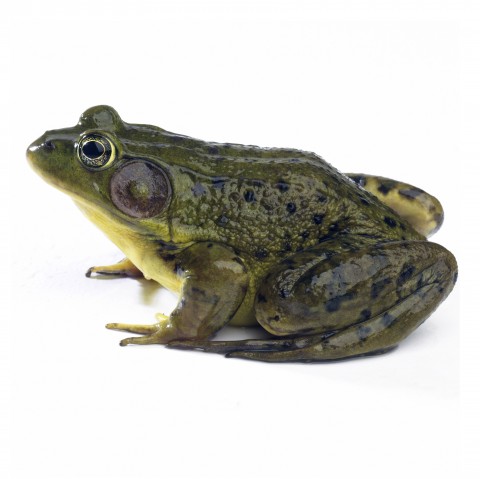
Bird-based endearment terms
- Славейче (Slaveyche) – Diminutive for “nightingale”
- Пиленце (Pilentse) – Chick
- Пате (Pate) – Duckling
- Гълъбче (Galabche) – Diminutive for “dove”
Nature-based endearment terms
- Слънчице (Slanchitse) – Little sun
- Звездичке (Zvezdichke) – Little star
- Ягодке (Yagodke) – Little strawberry
Sweets-based endearment terms
- Захарче (Zaharche) – Sugar
- Бонбонче (Bonbonche) – Sweetie
- Шоколадче (Shokoladche) – Chocolate
- Сладкишче (Sladkishche) – Cake
- Бухтичке (Buhtichke) – Cruller
While we’re still on the topic of sweets, you might be interested in checking out the following list of Bulgarian vocabulary for meals.

5. Must-know Love Quotes
Much has been said about love and romance over the centuries. What better way to spice up your relationship than by reciting some popular love quotes in Bulgarian to your partner?
If you’ve chosen to call your favorite person Шоколадче (Shokoladche), or “Chocolate,” then you might be interested in the following love quote from Charles Schultz:
- Всичко, от което се нуждаем, е любов. Но малко шоколад не е излишен.
Vsichko, ot koeto se nuzhdaem, e lyubov. No malko shokolad ne e izlishen.
All we need is love. But a little chocolate is not superfluous.
And here’s a must-know love quote by the famous Mahatma Gandhi:
- Там, където има любов, има живот.
Tam, kadeto ima lyubov, ima zhivot.
Where there is love, there is life.
Another love quote is from Martin Luther King, Jr.:
- Реших, че ще избера любовта. Омразата е твърде тежък товар, за да го нося.
Reshih, che shte izbera lyubovta. Omrazata e tvarde tezhak tovar, za da go nosya.
I have decided to stick with love. Hate is too great a burden to bear.

6. Building a Love Dialogue
Now, let’s build a sample dialogue using some of the Bulgarian love expressions we described above.
- – Здравей, любов моя! Как си? Липсвашe ми!
Zdravey, lyubov moya! Kak si? Lipsvashe mi!
Hello, my love! How are you? I missed you!
- – И ти ми липсваше! Постоянно мисля за теб!
I ti mi lipsvashe! Postoyanno mislya za teb!
I missed you, too! I think about you all the time!
- – Мога ли да те целуна?
Moga li da te tseluna?
Can I kiss you?
- – Разбира се!
Razbira se!
Of course!
- – Какви прекрасни очи имаш!
Kakvi prekrasni ochi imash!
What beautiful eyes you have!
- – Благодаря ти! Обичам те!
Blagodarya ti! Obicham te!
Thank you! I love you!
- – Ще се омъжиш ли за мен? Нека създадем нашето общо бъдеще!
Shte se omazhish li za men? Neka sazdadem nasheto obshto badeshte!
Will you marry me? Let’s create our common future!
- – Да! Не мога без теб!
Da, ne moga bez teb!
Yes! I cannot live without you!
Hе мога без теб is also the name of a popular Bulgarian love song you might want to listen to.
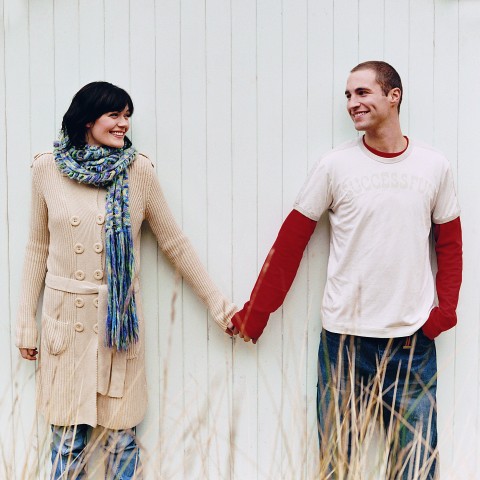
7. How BulgarianPod101 Can Help You Learn the Bulgarian Language
We hope that we made your day brighter with this overview of Bulgarian love phrases. Now, you can say “I love you,” in Bulgarian and build a deeper love dialogue with your Bulgarian partner. And trust us: He or she will definitely appreciate your efforts!
BulgarianPod101 aims to help you overcome any language barrier, even in your love life!
We provide tons of practical lessons on the Bulgarian language and culture, as well as specially tailored learning pathways to help you reach your specific goals faster. If you need a more personal approach and extra guidance, you can upgrade to a Premium PLUS subscription to take advantage of our MyTeacher service. Your own personal teacher will help you learn the right vocabulary for any situation—even for asking that lucky man or woman out on a date. 😉
With our lessons and guidance, you’ll gain the confidence you need to win the heart of your beloved.
We would love to hear from you! Please don’t hesitate to share your thoughts with us in the comments, and let us know which romantic phrases in Bulgarian you found most helpful.
Until next time, happy learning. We’re wishing you success in your love life!

Learn About Negation in Bulgarian

Negation is a linguistic tool we use every day. From refusing proposals to answering questions in the negative, there are so many ways we use the word “no” in our daily conversations and social engagements. After all, we can’t possibly agree on everything all the time!
Learning about negation in Bulgarian grammar is a key element in mastering the language, and we recommend that you study this early on.
Here are some reasons why it’s good to learn how to say “no“ in Bulgarian:
- You’ll be able to express an opposite opinion.
- You can react negatively when someone speaks untruthfully.
- You can disagree with any offensive declaration.
- You can express to others your inability to do something.
- You can state that something never happened.
BulgarianPod101 has prepared this Bulgarian negation overview to guide you through this complex topic. You’ll learn how to form negative sentences in Bulgarian, how to say no, how to answer questions in the negative, and more.
 Table of Contents
Table of Contents
- Negate a Statement
- Making Negative Sentences with the Verb “To Bе”
- Giving a Negative Response to a Question
- Other Negating Words and Phrases
- Double Negatives
- How BulgarianPod101 Can Help You Learn Bulgarian
- Answers to the Practical Exercises
1. Negate a Statement
Let’s start by learning how to negate a positive statement in Bulgarian. For your convenience, we’ve also included some practical exercises to help you get the hang of it!
Here are the positive statements:
- Аз съм американец. / Ние сме американци.
(Az sam amerikanets. / Nie sme amerikantsi.)
I am an American. / We are Americans.
- Аз уча български, защото смятам да пътувам за България.
(Az ucha balgarski, zashtoto smyatam da patuvam za Balgariya.)
I study Bulgarian because I plan to travel to Bulgaria.

To make these positive statements negative in the simple present tense, we have to add the negative particle “не” in front of the verb. The negative versions of these sentences look like this:
- Аз не съм американец. / Ние не сме американци.
(Az sam amerikanets. / Nie sme amerikantsi.)
I am not an American. / We are not Americans.
- Аз не уча български, защото не смятам да пътувам за България.
(Az ne ucha balgarski, zashtoto ne smyatam da patuvam za Balgariya.)
I don’t study Bulgarian because I do not plan to travel to Bulgaria.
Learning Bulgarian vocabulary for nationalities is not an easy thing. To help you out, here’s a list of 35 nationalities and how they’re pronounced in Bulgarian.
Practical exercise: Making affirmative statements negative in the simple present tense
It seems simple, right? Just figure out where the verb is located and put the negative particle before it. Now, practice negation in Bulgarian yourself with the following sentences:
- Аз обичам да ходя на ресторант.
(Az obicham da hodya na restorant.)
I like going to restaurants.
- Тя живее в къща.
(Tya zhivee v kashta.)
She lives in a house.
- Те работят в тази фирма.
(Te rabotyat v tazi firma.)
They work for this company.
You can check your answers at the end of this article.
Negate a statement in the future tense
When the statement you would like to negate is in the future tense, a different negative particle is used instead of “не.” In this case, the negative particle “няма да” (nyama da), meaning “won’t,” should replace the Bulgarian future tense particle “ще” (shte), meaning “will.”
Let’s make it more clear by providing an example. Locate the particle “ще” first.
- Когато науча български, ще се върна в Америка.
(Kogato naucha balgarski, shte se varna v Amerika.)
When I learn Bulgarian, I will return to America.
Now let’s replace the particle “ще” with the negative particle “няма да.”
- Когато науча български, няма да се върна в Америка.
(Kogato naucha balgarski, nyama da se varna v Amerika.)
When I learn Bulgarian, I will not return to America.
By the way, BulgarianPod101 can help you start using the future tense to make plans and appointments in this lesson.
Practical exercise: Negate a statement in the future tense
Now, it’s your turn to make a negative statement in the future tense. Try the following sentences:
- Утре ще ходя на ресторант.
(Utre shte hodya na restorant.)
I’m going to a restaurant tomorrow.
- Тя ще живее в тази къща.
(Tya shte zhivee v tazi kashta.)
She will live in this house.
- Те ще работят в тази фирма.
(Te shte rabotyat v tazi firma.)
They will work for this company.
You can check your answers at the end of this article.

2. Making Negative Sentences with the Verb “To Bе”
When building Bulgarian negation sentences with the verb съм (sam), you need to follow the same principle as with the other verbs: The negative particle “не” should be placed in front of the verb съм.
Let’s start with affirmative examples. We’ll provide two versions of each sentence (for masculine and feminine gender, respectively) in the first person singular:
| masculine | feminine | |
| Аз съм българин. (Az sam balgarin.) I am Bulgarian. | Аз съм българка. (Az sam balgarка.) I am Bulgarian. | |
| Аз съм тъжен. (Az sam tazhen.) I am sad. | Аз съм тъжна. (Az sam tazhnа.) I am sad. | |
| Ние сме млади. (Nie sme mladi.) We are young. | ||
Now, let’s make these sentences negative. Note that, in contrast to the English language where the negative particle not is placed after the verb “to be,” the particle не comes before the verb “to be” in Bulgarian.
| masculine | feminine |
| Аз не съм българин. (Az ne sam balgarin.) I am not Bulgarian. | Аз не съм българка. (Az ne sam balgarка.) I am not Bulgarian. |
| Аз не съм тъжен. (Az ne sam tazhen.) I am not sad. | Аз не съм тъжна. (Az ne sam tazhnа.) I am not sad. |
| Ние не сме млади. (Nie ne sme mladi.) We are not young. | |

Practical exercise: Making negative sentences with the verb “to bе”
Ready to practice this essential skill? Each of these sentences contains a conjugated form of the verb “to be.” Try to make them negative!
- Колата е бърза.
(Kolata e barza.)
The car is fast.
- Времето е хубаво.
(Vremeto e hubavo.)
The weather is nice.
- Хората са добри.
(Horata sa dobri.)
People are good.
- Те са мълчаливи днес.
(Te sa malchalivi dnes.)
They are silent today.
You can check your answers at the end of this article.
3. Giving a Negative Response to a Question
It’s time to learn how to give negative answers to questions that others ask you. Here are three examples, each one for a different scenario:
With a possessive pronoun
- – Този телефон твой ли е?
(Tozi telefon tvoy li e?)
Is this phone yours?
- – Не, не е мой.
(Ne, ne e moy.)
No, it’s not mine.
With the verb “to be“
- – Ти от Бразилия ли си?
(Ti ot Braziliya li si?)
Are you from Brazil?
- – Не, не съм от Бразилия.
(Ne, ne sam ot Braziliya.)
No, I’m not from Brazil.
With a common verb
- – Ти обичаш ли ме?
(Ti obichash li me?)
Do you love me?
- – Не, не те обичам.
(Ne, ne te obicham.)
No, I don’t love you.

- → Are you feeling pretty negative today? Then see BulgarianPod101’s lesson on how to express anger in Bulgarian.
Practical exercise: Giving a negative response to a question
Your next task is to answer the following questions negatively.
- Ти помагаш ли му?
(Ti pomagash li mu?)
Are you helping him?
- Ти учиш ли?
(Ti uchish li?)
Do you study?
- Ти знаеш ли това?
(Ti znaesh li tova?)
Do you know that?
- Ти млад ли си?
(Ti mlad li si?)
Are you young?
A hint: Follow the last example (With a common verb) from above to answer the first three questions and the second example (With the verb “to be“) for the last one. You can check whether your answers are correct at the end of this article.
- ★ One more task:
Alter the following question for the feminine gender and answer it negatively, too:
- Ти млад ли си?
(Ti mlad li si?)
Are you young?
4. Other Negating Words and Phrases
In addition to Bulgarian negative particles, there are some other negating words that make sentences negative. It’s interesting to note that these words have to be used in combination with the negative particle “не” in order to build a grammatically correct negative sentence.
| Bulgarian | English |
| нищо (nishto) – should be used with “не“ | nothing |
| никой (nikoy) – should be used with “не“ | nobody |
| никога (nikoga) – should be used with “не“ | never |
| не мога (ne moga) | I cannot |
| не трябва (ne tryabva) | should not / must not |
Examples:
- Нищо не ми трябва.
(Nishto ne mi tryabva.)
I don’t need anything.
- Никой не идва.
(Nikoy ne idva.)
Nobody is coming.
- Никога не закъснявам.
(Nikoga ne zakasnyavam.)
I’m never late.
- Аз не мога да дойда на работа днес.
(Az ne moga da doyda na rabota dnes.)
I can’t come to work today.
- Не трябва да работя много.
(Ne tryabva da rabotya mnogo.)
I don’t have to work hard.
Practical exercise: Negating words and phrases
Make the following sentences negative in Bulgarian by adding the negative words in parentheses to them. Hint: Don’t forget to add the negative particle не.
- Разбирам. (add нищо)
(Razbiram.)
I understand.
- Говоря с непознати. (add никога)
(Govorya s nepoznati.)
I’m talking to strangers.
- Чува какво говоря. (add никой)
(Chuva kakvo govorya.)
He hears what I’m saying.
5. Double Negatives
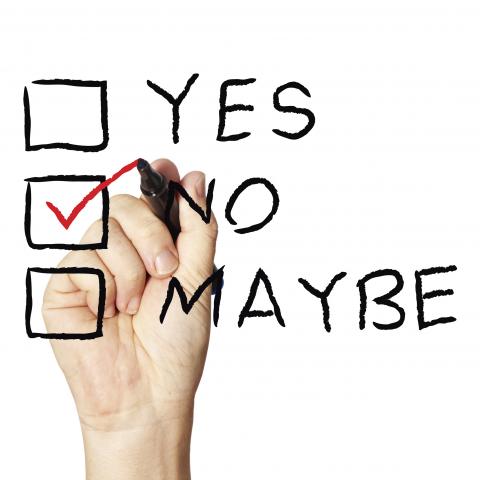
Double negatives are typical in the Bulgarian language. As we saw in the previous section, the negative pronouns (like никой) can only be used with the negative form of the verb.
- Никой престъпник не остава ненаказан.
(Nikoy prestapnik ne ostava nenakazan.)
No criminal goes unpunished.
In the sentence above, the Bulgarian negative pronoun (никой) is equivalent to the English word “no.”
- Нищо не виждам в тъмното.
(Nishto ne vizhdam v tamnoto.)
I don’t see anything in the dark.
- Не приемам никакви предложения.
(Ne priemam nikakvi predlozheniya.)
I do not accept any suggestions.
6. How BulgarianPod101 Can Help You Learn Bulgarian
BulgarianPod101 has prepared this overview of Bulgarian negation to help you better understand how it works so you can start using it in your daily conversations with Bulgarians. We believe that this explanation and the exercises we provided can help you quickly overcome the language barrier and start speaking freely.
If you feel like you need some additional help for that, you can check out our MyTeacher service, which allows you to study and practice with your own personal Bulgarian tutor. He or she can help give you the confidence you need to start speaking Bulgarian on your own.
Before you go: Did you find these practical exercises challenging? What exactly did you find most challenging about them? We would love to hear from you, so please share your thoughts in the comments below.
And now, it’s time to check your answers!
7. Answers to the Practical Exercises
Answers to practical exercise: Making affirmative statements negative
- Аз не обичам да ходя на ресторант.
(Az ne obicham da hodya na restorant.)
I don’t like going to restaurants.
- Тя не живее в къща.
(Tya ne zhivee v kashta.)
She doesn’t live in a house.
- Те не работят в тази фирма.
(Te ne rabotyat v tazi firma.)
They don’t work for this company.
Answers to practical exercise: Negate a statement in the future tense
- Утре няма да ходя на ресторант.
(Utre nyama da hodya na restorant.)
I’m not going to a restaurant tomorrow.
- Тя няма да живее в тази къща.
(Tya nyama da zhivee v tazi kashta.)
She will not live in this house.
- Те няма да работят в тази фирма.
(Te nyama da rabotyat v tazi firma.)
They will not work for this company.
Answers to practical exercise: Making negative sentences with the verb “to bе”
- Колата не е бърза.
(Kolata ne e barza.)
The car is not fast.
- Времето не е хубаво.
(Vremeto ne e hubavo.)
The weather is not nice.
- Хората не са добри.
(Horata ne sa dobri.)
People are not good.
- Те не са мълчаливи днес.
(Te ne sa malchalivi dnes.)
They are not silent today.
Answers to practical exercise: Giving a negative response to a question
- Ти помагаш ли му?
(Ti pomagash li mu?)
Are you helping him?
- – Не, не му помагам.
(Ne, ne mu pomagam.)
No, I’m not helping him.
- Ти учиш ли?
(Ti uchish li?)
Do you study?
- – Не, не уча.
(Ne, ne ucha.)
No, I’m not studying.
- Ти знаеш ли това?
(Ti znaesh li tova?)
Do you know that?
- – Не, не зная това.
(Ne, ne znaya tova.)
No, I don’t know that.
- Ти млад ли си?
(Ti mlad li si?)
Are you young?
- – Не, не съм млад.
(Ne, ne sam mlad.)
No, I’m not young.
- ★ One more task:
| masculine | feminine |
| Ти млад ли си? (Ti mlad li si?) Are you young? | Ти млада ли си? (Ti mladа li si?) Are you young? |
| Не, не съм млад. (Ne, ne sam mlad.) No, I’m not young. | Не, не съм млада. (Ne, ne sam mlada.) No, I’m not young. |
Answers to practical exercise: Negating words and phrases
- Нищо не разбирам.
(Nishto ne razbiram.)
I do not understand anything.
- Никога не говоря с непознати.
(Nikoga ne govorya s nepoznati.)
I never talk to strangers.
- Никой не чува какво говоря.
(Nikoy ne chuva kakvo govorya.)
Nobody hears what I’m saying.

How Long Does it Take to Learn Bulgarian?

The Bulgarian language is not an easy one for English speakers to learn. Being part of the Slavic language family, it differs quite a bit from the Germanic and Romance languages. Not only do learners have to get used to the Cyrillic alphabet, but they must also learn all the noun and adjective endings for different genders, the verb conjugations for different tenses, and so on.
Feeling intimidated already?
Don’t worry! BulgarianPod101 is here to encourage you.
Although it might take some time, learning Bulgarian is possible. In this article, we’ll teach you how to learn Bulgarian faster and more effectively for the best results.
There are three things you’ll need if you want to master the language:
- Motivation. In order to succeed, you need to maintain a high level of motivation during the entire learning process. One way you can do this is to stick to a schedule. Of course, in order to make a good plan, you’ll need to know how long it would take to learn Bulgarian to reach a beginner, intermediate, or advanced level. Don’t worry: Our guide will give you practical information regarding what kind of time commitment you’re looking at.
- Persistence. You’ll come across some difficult topics and subjects throughout the course of your studies, but it’s important to continue your learning in order to advance. Each challenge you overcome will make you a more successful language learner.
- Achievement. When you see your first marks of progress, you’ll be motivated to continue your studies. The more achievements you see, the more motivated you’ll be to learn the Bulgarian language in full.

 Table of Contents
Table of Contents
- 3 Factors That Play a Huge Role in Bulgarian Language Learning
- Comparison Between Bulgarian and Other Languages
- How Long Does it Take to Achieve aBeginner Level?
- How Long Does it Take to Achieve an Intermediate Level?
- How Long Does it Take to Achieve an Advanced Level?
- How BulgarianPod101 Can Help You Learn the Bulgarian Language
3 Factors That Play a Huge Role in Bulgarian Language Learning
There are three main factors that determine how long it takes to learn Bulgarian:
- Attitude. Having a positive attitude toward learning will make the process much easier and more enjoyable for you. Try to be as dedicated as possible, and view this as an opportunity to broaden your horizons.
- Time. The more time you study and practice the language, the less time it will take to get used to it.
- Attentiveness. Some people have a talent for learning foreign languages quickly. If you’re among them, consider yourself lucky! The learning process will require less effort from you compared to other learners. But regardless of your natural inclinations toward language learning, you should always strive to be attentive in your studies!

Comparison Between Bulgarian and Other Languages
The time it will take you to learn Bulgarian depends, to some extent, on your first language. If you’re a native English speaker, then you might find the Bulgarian language more difficult to learn than other languages (like French, Spanish, or Italian).
One of the reasons for this is the existence of a third gender (neuter) in Bulgarian, compared to the two genders (masculine and feminine) used in the Romance languages mentioned above. This means that Bulgarian learners have to learn more noun and adjective forms, as well as how to identify the three different genders.
In addition, Bulgarian belongs to the group of Slavic languages, which are more challenging to learn compared to the other European languages. There are many irregular forms of verbs, noun cases, exceptions to the rules, etc. that make studying more difficult.
However, learning the Bulgarian language is not Mission Impossible as long as you dedicate your time and efforts to achieving this goal. Below, we’ll discuss how long it takes to master each of the Bulgarian language levels based on research by the Foreign Service Institute (FSI).
How the Foreign Service Institute Ranks Bulgarian
The FSI has divided foreign languages into four categories. Category I languages are the most similar to English (and thus easier to learn), while Category IV languages are the least similar (and most difficult to learn).
Category I languages include Spanish, French, and Italian, for instance. These take an English speaker roughly 24 weeks (600 hours) of intensive study to reach speaking and reading proficiency.
On the other end of the scale are Category IV languages, which include Arabic, Korean, and Japanese, for example. These languages take about 88 weeks (2200 hours) to fully master.
So where exactly does Bulgarian fall?
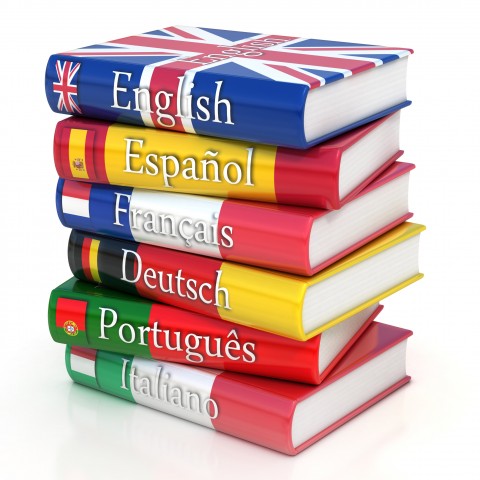
The FSI classifies Bulgarian as a Category III language. Other languages in this category include Czech, Polish, Turkish, and Greek. These languages take about 44 weeks (1100 hours) of study to master.
So if you would like to learn Bulgarian, you may need almost a full year of studying to gain fluency in speaking, reading, and writing, and to communicate freely with Bulgarians. Although this might seem like a long time, you can succeed if you’re persistent in your efforts and accumulate knowledge slowly but surely.
That said, you can start speaking Bulgarian way sooner! If you follow the lessons prepared by BulgarianPod101, you’ll be able to start communicating with native speakers within a few weeks. Don’t you think it’ll be worth the effort?
Additional Note: Keep in mind that Bulgarian learners who already know Russian or another Slavic language will have a much easier time picking up the language. This is because Bulgarian and other Slavic languages have many things in common.
How Long Does it Take to Achieve a Beginner Level?

What language skills are developed at the beginner level?
The beginner level encompasses levels A1 and A2.
It involves comprehension of everyday expressions and simple conversations. For example, you’ll be able to greet someone, introduce yourself, and ask questions to maintain a conversation at a simple level, if your interlocutor speaks slowly enough. You’ll also be able to express your needs to others.
How do you know whether you’re at the A1 or A2 level? If any of these things apply to you, you’re probably still at the A1 level:
- The Bulgarian language is completely new to you
- You may have lived for a short time in Bulgaria, but you know only a few words and phrases
- You may have started to study this language on your own, but without sufficient practice
How long does it take to become a beginner-level Bulgarian speaker?
It usually takes 2 months (50 hours) to master these basic Bulgarian language skills.
How can you reach this level faster?
If you would like to accelerate your progress, you can watch YouTube channels that teach the Bulgarian language to beginners. A good place to start is Learn Bulgarian with BulgarianPod101.com, where you can find hundreds of free lessons to help you advance much more quickly.
Using flashcards to remember new words is also very useful at this level of language study. Wondering how to learn Bulgarian faster using mobile flashcards? You can learn more about this method on our website!
Absolute Beginner Pathways for Bulgarian Learners
Here are some tips on how to learn Bulgarian online using BulgarianPod101.com!
- Start with the Bulgarian alphabet.
The Bulgarian alphabet is the foundation upon which you’ll build the rest of your language skills. Do not skip or postpone this step! We recommend starting with our free alphabet guide for absolute beginners, which will help you quickly become familiar with the Bulgarian alphabet. It might take you up to a week to feel completely comfortable with it, but it’s well worth the effort.
- Go through some well-structured audio lessons.
Becoming comfortable with audio material right from the start will really help speed up your progress. You can check out our 3-Minute Bulgarian series, which consists of 25 three-minute lessons suitable for beginners. You’ll get acquainted with topics such as self-introductions, greetings, manners, asking questions, making apologies, and much more. It might take you a couple of weeks to get through the series, depending on how many lessons you do each day.
- Study longer, more complicated beginner lessons.
Next, you might want to go through our Absolute Beginner pathway. It features 25 lessons (about 10 minutes each) that will help you better assimilate the information from the previous course and learn new vocabulary/skills. By the end of this series, you’ll be able to express your thoughts, needs, and questions more effectively. It might take 2-3 weeks of study and practice to feel confident speaking with your Bulgarian interlocutors.
Bonus: How much Bulgarian can you learn in 60 minutes? To find out, try out our 60-minute course Lessons for Your Flight to Bulgaria! If you’re an A2-level learner, you’ll find this easy to complete—but it’s still a great way to reinforce your vocabulary knowledge.
How much time will it take to reach beginner-level Bulgarian with BulgarianPod101.com?
| Mastering the Bulgarian Alphabet | Up to 1 week |
| 3-Minute Bulgarian Series | Up to 2 weeks |
| Absolute Beginner Pathway | Up to 3 weeks |
It takes a maximum of 6 weeks to reach the beginner Bulgarian level with our platform. Not that bad, right?
- We’ve also prepared a bunch of interesting 1-minute animated series videos that are well-suited for absolute beginners.
How Long Does it Take to Achieve an Intermediate Level?
What language skills are developed at the intermediate level?
The intermediate level (B1 and B2), can be summed up in just one word: communication.
At this stage, you have the ability to communicate about broad topics that aren’t too complicated. These topics usually involve hobbies, weather, work, education, details about locations, holidays, etc. You’ll also be able to describe experiences, events, ideas, projects, likes, and dislikes; you could lead conversations with local Bulgarians more freely.
At the B2 level, you’ll have additional fluency when communicating on a wider range of contexts.
Do any of the following points apply to you? Then it means you’re ready to start studying at the intermediate level.
- You have already completed the A2 level.
- You’re able to lead basic conversations.
- You require some extra practice in both spoken and written Bulgarian.
- You would like to get prepared for an upcoming Bulgarian language exam.
How long does it take to become an intermediate-level Bulgarian speaker?
It usually takes 4 months (80-90 hours) to master these intermediate Bulgarian-language skills. This timeframe applies to intensive learners who study every day for about 4 hours. For those who study every other day, it may take 8 or more months to achieve this stage.
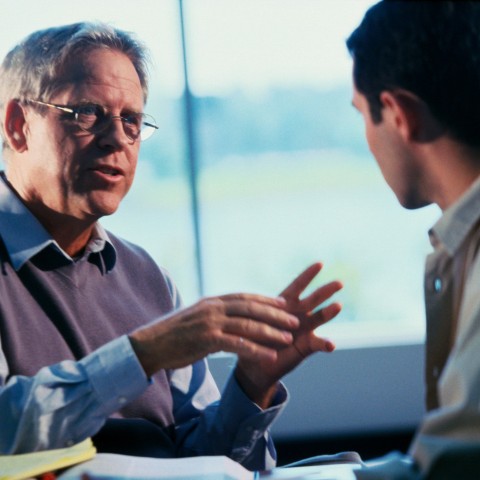
How can you reach this level faster?
If this sounds like a long time to you, here are some tricks and tips on how to learn Bulgarian quickly at this stage:
- Watch Bulgarian movies with English subtitles online.
- Listen to popular Bulgarian songs with English subtitles.
- Watch popular satirical Bulgarian TV shows.
- Read Bulgarian books online.
- Make use of language learning apps.
- Watch free Bulgarian lessons on YouTube.
Also make sure to check out our list of 5 Tips to Reach Intermediate Level!
Intermediate-Level Pathways for Bulgarian Learners
After achieving a basic level of Bulgarian, you may find that things become harder to learn. The new information is more complicated and should be gradually added to your existing knowledge. You’ll need to engage in many more practical exercises to start advancing.
BulgarianPod101 has prepared appropriate lessons for this language level as well, to help intermediate learners accelerate their progress at this stage.
- All About
Our All About course consists of 15 short audio lessons that will help you learn all about the society and culture of Bulgaria. The total duration of this series is 1hr 51min.
- Conversational Phrases
This is another short course of 10 audio lessons with a total duration of just 10 minutes. It will get you acquainted with more conversational phrases and teach you common words you’ll need in your conversations.
- Essential Bulgarian for Emergencies
This course consists of 8 lessons, and it’s a very practical set that will help you develop intermediate-level skills you can use in a pinch.
- Level 3 Bulgarian
As you start to feel more confident with level B1, you can try out our Level 3 Bulgarian pathway. It features 25 lessons for a total duration of 6hrs 21min; there are also 10 assignments to complete. This course is aligned with level B1 of the CEFR scale.
How Long Does it Take to Achieve an Advanced Level?
What language skills are developed at the advanced level?
The advanced level is commonly referred to as C1-C2 and is very close to the native language level. The C2 level is considered to be the highest proficiency possible, and reaching it means you can use Bulgarian fluently in nearly all contexts.
Upon reaching an advanced level, you’ll be able to…
- …talk with native speakers fluently, without needing to grasp for specific words or phrases.
- …communicate with others about many different topics (personal experiences, professions, science, etc.).
- …build a variety of complex sentences in all tenses.
In addition, native Bulgarian speakers will be able to easily understand your thoughts and opinions when you speak.
It’s important to note that lessons at this level no longer focus on grammar. Usually, they include reading or listening to media on different subjects in the Bulgarian language, as well as lectures and workshops.

You’re ready to start studying advanced Bulgarian if the following points apply to you:
- You’ve completed the B2 level and you use Bulgarian grammar correctly.
- You’re planning to work or study in Bulgaria.
- You’re not satisfied with an average knowledge of Bulgarian and would like to gain fluency.
This level is definitely for those who are ready to double their efforts!
How long does it take to become an advanced-level Bulgarian speaker?
As we mentioned above, Bulgarian is a Category III language, meaning that it features significant cultural and linguistic differences from English.
To achieve proficiency in Bulgarian, intensive learners will need at least 1100 hours (44 weeks) of study. This equates to 5 hours per day, 5 days per week. You’ll need almost a full year of study to reach the C1 level of Bulgarian at this pace. If you study 2 hours a day (or less), you’ll need about 2 years to achieve this level.
How can you reach this level faster?
Although achieving the C1 level is not easy and takes a long time, there are some tips you could try in order to reach your goal faster:
- Find a native Bulgarian friend with whom you can often communicate.
- Spend a few months in Bulgaria to experience deep immersion into its language and culture.
- Watch special Bulgarian lessons intended for advanced learners.
- Continue to read, write, and listen in Bulgarian on a daily basis.
Advanced-Level Pathways for Bulgarian Learners
Are you serious about your studies and want some tips on how to learn Bulgarian faster? BulgarianPod101.com offers our advanced students plenty of fun and effective lessons to help enhance their skills.
- Level 5 Bulgarian
This advanced lesson pathway features 25 lessons for a total duration of 1hr 21min. This course is aligned with level C1 of the CEFR and covers topics including the top 10 Bulgarian tourist destinations, the top 10 Bulgarian leaders, and the top 10 Bulgarian writers.
- Listening Comprehension for Advanced Learners
Another great course is our Listening Comprehension for Advanced Learners series. Each lesson includes dialogues, answers to questions, and a full breakdown. The total duration of these 20 lessons is 1hr 9min.
- Video Culture Class: Bulgarian Holidays
We also offer a video culture class series that talks about different Bulgarian holidays. It consists of 25 lessons of 3-4 minutes each.
If you’re looking for even more ways to stay motivated, check out the Innovative Language 101 app for mobile devices. It allows you to learn Bulgarian anywhere, anytime! This innovative app is appropriate for all levels, so don’t miss out.
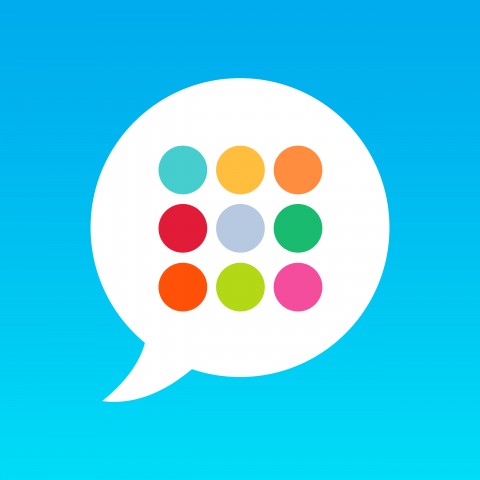
How BulgarianPod101 Can Help You Learn the Bulgarian Language
In this article, we talked about how long it takes to learn Bulgarian for each level of proficiency. We also discussed what’s expected of learners at each level and how to reach your learning goals faster with BulgarianPod101.com.
There’s still one key feature of our site we haven’t mentioned yet: MyTeacher for Premium PLUS members. With this service, you can get one-on-one tutoring and help from a native Bulgarian teacher. He or she can help you learn Bulgarian faster by guiding you step by step through the language—vocabulary, grammar rules, pronunciation, and more—so you can reach your desired proficiency level with little problem.
Before you go, we’re curious: How likely are you to start learning Bulgarian after reading this article? Feel free to reach out with any questions or concerns you still have—we’ll be glad to help!

Bulgarian Proverbs Guide: Learn 30 Wise Bulgarian Sayings

Proverbs are short and straightforward sayings that express valuable life advice. Studying Bulgarian proverbs means digging deeper into the local culture—it also means that you’re an advanced Bulgarian language learner who’s ready to take their knowledge to the next level. And while proverbs can be quite valuable to language learners, they also teach people how to be wiser in different life situations.
It’s always a fascinating adventure to explore the proverbs and sayings of other cultures, so BulgarianPod101 has compiled this list of thirty proverbs in Bulgarian along with their English translations. We think you’ll step away from this article a little wiser than before…

 Table of Contents
Table of Contents
- Bulgarian Proverbs About Success
- Bulgarian Proverbs About Wisdom
- Bulgarian Proverbs About Love
- Bulgarian Proverbs About Friendship
- Bulgarian Proverbs About Food
- Bulgarian Proverbs About Health
- Bulgarian Proverbs About Work and Language Learning Efforts
- How BulgarianPod101 Can Help You Learn Bulgarian
1. Bulgarian Proverbs About Success
We all strive to be successful in life, whatever that means to us. So what essential features must one develop to achieve success in life? Here are a few Bulgarian proverbs and sayings to offer you some cultural perspective on the topic.
#1
| Bulgarian | Капка по капка, вир става. |
| Pronunciation | Kapka po kapka, vir stava. |
| Literal | Drop by drop turns into a pool. |
| Equivalent | Drop by drop is the water pot filled. |
| This Bulgarian saying means that diligence and persistence lead to success. Even a few drops of water, if collected instead of being wasted, can add up over time so that you have enough to fill an entire pot. The same concept applies to money, experience, and any life skill that requires endurance. If you want to be successful, you have to be patient. | |

#2
| Bulgarian | Който се учи, той ще сполучи. |
| Pronunciation | Koyto se uchi, toy shte spoluchi. |
| Literal | A person who learns will succeed. |
| Equivalent | Knowledge is power and power is success. |
| If you want to be successful, then learn, learn, learn. The more knowledge you gain, the more confidence you’ll have while meeting different challenges in your work. Although knowledge alone is not enough, it’s an important part of achieving success. Now, let’s apply this proverb to Bulgarian language learning. In order to become a fluent Bulgarian speaker, you must learn more and more Bulgarian words. Add new words to your vocabulary every single day and you’ll succeed. | |
#3
| Bulgarian | Капката дълбае камъка не със сила, а с постоянство. |
| Pronunciation | Kapkata dalbae kamaka ne sas sila, a s postoyanstvo. |
| Literal | A drop carves a stone not with force, but with perseverance. |
| Equivalent | If you want a well, dig only in one place. |
| This Bulgarian saying means that people who would like to become real experts in something should work hard in their field until they’ve perfected their skills. There are many people out there who try hard in the beginning, only to give up once they get tired or discouraged, which prevents them from becoming successful. Everyone is able to be successful if he or she is persistent enough to continue even in the face of challenges. | |
#4
| Bulgarian | Ако не кърпиш вехтото, ново няма да носиш. |
| Pronunciation | Ako ne karpish vehtoto, novo nyama da nosish. |
| Literal | If you don’t patch your old cloth, you will not wear a new one. |
| Equivalent | Spending is quick, earning is slow. |
| Older Bulgarians in particular tend to prefer saving money over spending it on unnecessary things. Years of stringency made them frugal, and they respect people who know how to save money in order to spend it when a real need arises. | |

2. Bulgarian Proverbs About Wisdom
Bulgarians have many proverbs about wisdom. In fact, they even have a national folklore character named Хитър Петър (Hitar Petar), who is a symbol of cunning, wisdom, and wit. That said, let’s go over a few inspirational Bulgarian proverbs related to wisdom!
#5
| Bulgarian | Утрото е по-мъдро от вечерта. |
| Pronunciation | Utroto e po-madro ot vecherta. |
| Literal | The morning is wiser than the evening. |
| Equivalent | An hour in the morning is worth two in the evening. |
| On the one hand, this Bulgarian proverb suggests that the morning hours are the most productive ones. On the other hand, people in Bulgaria say this proverb when they have an important decision to make and it’s already late in the evening. They believe that making the decision should be postponed until the next morning, as the brain is tired in the evening and cannot think clearly. In the morning, when a person wakes up, he or she can consider problems much more efficiently and are more likely to make the right decision. That is why the morning is wiser than the evening. | |
#6
| Bulgarian | Докато мъдрите се намъдруват, лудите се налудуват. |
| Pronunciation | Dokato madrite se namadruvat, ludite se naluduvat. |
| Literal | While the wise people philosophize, the mad people go crazy. |
| This Bulgarian proverb means that if the rulers are weak, the whole nation will suffer at the hands of offenders. In this case, the word “wise” is used in an ironic sense, because these “wise people” only philosophize instead of taking real actions to stop the criminals. | |
#7
| Bulgarian | Ум царува, ум робува, ум патки пасе. |
| Pronunciation | Um tsaruva, um robuva, um patki pase. |
| Literal | The mind reigns, the mind is enslaved, the mind grazes ducks. |
| Equivalent | Some are wise and some are otherwise. |
This Bulgarian saying means a few different things:
| |

#8
| Bulgarian | По дрехите посрещат, по ума изпращат. |
| Pronunciation | Po drehite posreshtat, po uma izprashtat. |
| Equivalent | First impression is from your dress, last impression from your brains/wits. |
| The first thing people notice about you is your clothes, so they might initially be impressed by your appearance. But after talking with you, they’ll get an impression of your brain or wits. Wiser people don’t talk too much, and Bulgarians usually don’t welcome those who are too talkative. They like balanced conversations, so be aware of this if you’re ever invited to a Bulgarian’s home. | |

- → Need more motivation? Then check out our list of the Top 10 Inspirational Bulgarian Quotes!
3. Bulgarian Proverbs About Love
As a popular song states, “All you need is love.” In that vein, let’s explore some of the most popular Bulgarian love proverbs…
#9
| Bulgarian | Любов хубост не гледа. |
| Pronunciation | Lyubov hubost ne gleda. |
| Literal | Love does not look for beautiful appearance. |
| Equivalent | Beauty is not in the face; beauty is a light in the heart. |
| When one person loves another, he or she doesn’t notice any defects in the appearance or character of the one they love. A Bible proverb written by Solomon says that “love covers over all wrongs.” | |
#10
| Bulgarian | Старата любов ръжда не хваща. |
| Pronunciation | Starata lyubov razhda ne hvashta. |
| Equivalent | Old love does not rust. |
| This saying means that old feelings do not fade away. Metal may rust over time and waste away, but feelings of love typically don’t and can even stay as strong as they were in the very beginning! | |
It’s interesting to note that Bulgarians have another proverb which states exactly the opposite:
#11
| Bulgarian | Очи, които дълго не се виждат, се забравят. |
| Pronunciation | Ochi, koito dalgo ne se vizhdat, se zabravyat. |
| Literal | Eyes that have not seen each other for a long time can be forgotten. |
| Equivalent | Out of sight, out of mind. |
| If two lovers are separated for a long time, they might forget each other—especially if their love is not well-rooted. | |

#12
| Bulgarian | Младост без любов — пролет без цвете. |
| Pronunciation | Mladost bez lyubov — prolet bez tsvete. |
| Literal | Youth without love is spring without a flower. |
| Equivalent | Without love, everything is in vain. |
| One cannot be happy without loving and being loved. This Bulgarian proverb states that love is the essence of life, making everything around it beautiful—just like flowers make springtime the most beautiful season. | |

- → Want to impress your Bulgarian sweetheart? Then study these 15 Bulgarian Love Phrases for Valentine’s Day!
4. Bulgarian Proverbs About Friendship
Bulgarians value true friendship, so it should come as no surprise that we have many proverbs on the topic. Who knows? Maybe they’ll help you understand who your true friends are!
#13
| Bulgarian | Приятел в нужда се познава. |
| Pronunciation | Priyatel v nuzhda se poznava. |
| Literal | A friend is recognized in need. |
| Equivalent | A friend in need is a friend indeed. |
| A true friend will always help out in times of need, and will never leave his or her friend to suffer alone. They’ll dedicate their time, money, and efforts to help you, doing everything they can to make you feel better. A false friend, on the other hand, will hide from you as soon as you run into troubles. | |
#14
| Bulgarian | Кажи ми какви са приятелите ти, за да ти кажа какъв си. |
| Pronunciation | Kazhi mi kakvi sa priyatelite ti, za da ti kazha kakav si. |
| Equivalent | Tell me who your friends are, and I will tell you who you are. |
| This Bulgarian saying means that the friends you hang out with can define you. This makes sense, as friends tend to share personality and behavioral traits. As such, you can tell a lot about a person based on who their friends are. | |
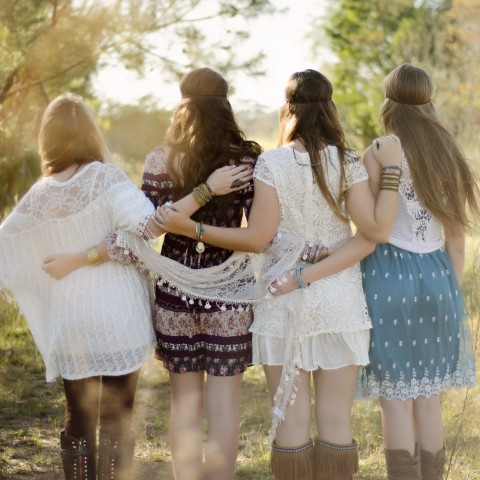
#15
| Bulgarian | Лют човек приятел не държи. |
| Pronunciation | Lyut chovek priyatel ne darzhi. |
| Literal | A furious man does not keep any friends around. |
| It’s difficult for some people to find friends. They might think that the problem lies with other people, but often the problem is hidden within themselves. No one wants to hang around or be associated with an angry person. | |

#16
| Bulgarian | Приятелството си е приятелство, но сиренето е с пари. |
| Pronunciation | Priyatelstvoto si e priyatelstvo, no sireneto e s pari. |
| Literal | Friendship is friendship, but cheese costs money. |
| Although a friend in need is a friend indeed, a true friend will not take advantage of a friend’s generosity. Just because your friend sells cheese doesn’t mean you should expect to get any for free! | |
- → This was only a small sample of what Bulgarians have to say on the topic. Check out our vocabulary list of the Top 10 Bulgarian Quotes About Friendship for even more words of wisdom!
5. Bulgarian Proverbs About Food
Food is an important detail of one’s life, so here are a few wise Bulgarian sayings related to food.
#17
| Bulgarian | Никой не е по-голям от хляба. |
| Pronunciation | Nikoy ne e po-golyam ot hlyaba. |
| Literal | No one is larger than bread. |
| This saying reveals the attitude that Bulgarians have toward bread and how important it is to them. In Bulgaria, bread plays an important role and it’s always present on the table. It’s also considered the most holy of foods. | |

#18
| Bulgarian | Умният навсякъде си изкарва хляба. |
| Pronunciation | Umniyat navsyakade si izkarva hlyaba. |
| Literal | A smart man earns his bread anywhere. |
| Equivalent | A smart man can earn a living anywhere. |
| The saying “to earn your own bread” in Bulgarian means to earn a living, which again underlines the importance of bread in Bulgarian culture. This saying means that the wise can overcome all challenges so that they always have enough to live on wherever they are. | |
#19
| Bulgarian | Гладна кокошка просо сънува. |
| Pronunciation | Gladna kokoshka proso sanuva. |
| Literal | A hungry hen dreams of millet. |
| This proverb relates to wishful thinking. It means that some people dream of things greater than what they have, but they take no action to make it happen in reality. | |
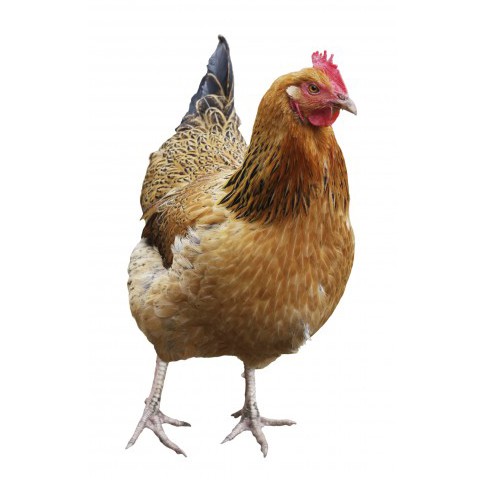
#20
| Bulgarian | Ден година храни. |
| Pronunciation | Den godina hrani. |
| Translation | A single day helps you get food for the whole year. |
| In the past, this saying meant that every day of the year was equally important for earning a living. But nowadays, it’s mostly associated with unfair traders who make their prices unrealistically high in order to make lots of money quickly and remain idle the rest of the year. | |
- → Head over to our free vocabulary list on Talking About Food and Ingredients in Bulgarian to further expand your vocabulary!
6. Bulgarian Proverbs About Health
Health is among the most valuable acquisitions a person can have, so let’s see what Bulgarian proverbs have to say about it.
#21
| Bulgarian | Здрав дух – здраво тяло. |
| Pronunciation | Zdrav duh – zdravo tyalo. |
| Equivalent | A healthy mind, a healthy body. |
| This Bulgarian proverb expresses the importance of inner peace, forgiveness, trust, etc., for people’s wellbeing. We should keep our spirit healthy in order to have a healthy body, as stress, anxiety, suspicion, and other negative feelings can increase our chances of getting sick. | |
#22
| Bulgarian | Никой не може да бъде по-добър лекар от верния приятел. |
| Pronunciation | Nikoy ne mozhe da bade po-dobar lekar ot verniya priyatel. |
| Equivalent | No one is a better doctor than a faithful friend. |
| This Bulgarian saying is a continuation of the previous one. A faithful friend is able to bear our griefs, so we won’t feel alone in our sorrow. A similar proverb goes: Споделената мъка е половин мъка, а споделената радост е двойна радост. Spodelenata maka e polovin maka, a spodelenata radost e dvoyna radost. “Shared sorrow is half the sorrow; shared joy is double the joy.” | |
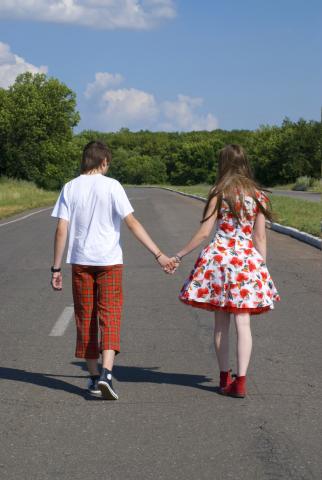
#23
| Bulgarian | Живот, здраве и добри помисли като има човек, пари не му трябват. |
| Pronunciation | Zhivot, zdrave i dobri pomisli kato ima chovek, pari ne mu tryabvat. |
| Translation | When a person has a good life, good health, and good thoughts, he does not need money. |
| Мoney can’t buy happiness! This saying is as old as money, but it’s true. You can find poor people barely earning a living who are constantly smiling and happy, as well as millionaires who are so miserable and depressed that they take their own lives. This Bulgarian proverb states that there are three factors involved in being happy: life, health, and good thoughts. | |
#24
| Bulgarian | Здравето е най-големият имот. |
| Pronunciation | Zdraveto e nay-golemiyat imot. |
| Translation | Our health is our largest property. |
| No matter how many properties we have, and no matter how luxurious and large they are, we cannot enjoy them (or our lives) if we aren’t healthy. That’s why health is considered one of the most valuable and precious things in this world! | |
Do you have health problems you would like to share with your Bulgarian friends in their own language? BulgarianPod101 can help! Just head over to our vocabulary list of Bulgarian Vocabulary for Common Health Problems!
7. Bulgarian Proverbs About Work and Language Learning Efforts
Those who are diligent and persistent in their language learning efforts will soon see progress and advance quickly. For extra motivation, let’s see what Bulgarian proverbs say about work and learning.
#25
| Bulgarian | Човек се учи, докато е жив. |
| Pronunciation | Chovek se uchi, dokato e zhiv. |
| Literal | A person learns while he is alive. |
| Equivalent | You are never too old to learn. |
| This popular Bulgarian proverb means that we never stop learning, as knowledge itself is endless and our life is too short to comprehend it all. On the other hand, this saying could also be applied to your Bulgarian language studies. The more you learn, the more successful you’ll be over time. | |

#26
| Bulgarian | Без труд почивката не е сладка. |
| Pronunciation | Bez trud pochivkata ne e sladka. |
| Literal | Without work, rest is not sweet. |
| This saying encourages diligence. It suggests that those who don’t work cannot feel the sweetness of rest. They probably cannot sleep as well as those who work hard all day. | |
#27
| Bulgarian | Работата на ум учи. |
| Pronunciation | Rabotata na um uchi. |
| Literal | The work teaches the mind. |
| One only gains practical skills and experience through working, and the same concept applies to language learning. Once you gain minimal knowledge of a language, you should start practicing it in real life to expand upon your skills and gain new ones. Passive learning is often in vain. | |
#28
| Bulgarian | Лозето не ще молитва, а мотика. |
| Pronunciation | Lozeto ne shte molitva, a motika. |
| Literal | The vineyard does not need a prayer, but a hoe. |
| Equivalent | God helps those who help themselves. |
| This saying is quite popular in Bulgaria, and it conveys the importance of hard work in being successful. If you want your vineyard to give fruit, don’t just sit beside it and pray; take the hoe and start working. No matter how many prayers you say, you won’t receive a good crop unless you work for it. | |

8. How BulgarianPod101 Can Help You Learn Bulgarian
In this Bulgarian proverbs guide, you’ve picked up some useful phrases and gained some valuable insight into the beauty of Bulgarian culture. Learning these proverbs will make it easier for you to communicate with the local people and help you better fit in during your stay in Bulgaria.
If you would like to learn even more Bulgarian proverbs or dig deeper into Bulgarian grammar, we recommend you try our MyTeacher service for Premium PLUS members. You can choose a private teacher from our team of experienced Bulgarian language experts, who will give you additional information on any topics of your choosing and provide you with practical assignments to hone your skills.
We hope you enjoyed today’s lesson on Bulgarian proverbs, and that you feel a little bit wiser now. 😉 Before you go, let us know in the comments which of these proverbs you can relate to the most right now. We look forward to hearing from you!

Travel Guide: The Best Places to Visit in Sofia, Bulgaria

Bulgaria is an amazing country that has many adventures to offer foreigners. There are so many points of interest that the options can be overwhelming!
In this Sofia travel guide, we’ll get you acquainted with some of the most interesting places to visit in Sofia and provide you with travel tips to give you more confidence during your very first visit to the Bulgarian capital.
BulgarianPod101 invites you on this intriguing virtual tour before you travel to Sofia, so you can feel the atmosphere of this big city before you even arrive.

 Table of Contents
Table of Contents
- Before You Go
- Sofia Travel Tips
- 7 Must-See Places in Sofia for a 1-3 Day Trip
- Highly Recommended Places for a 4-7 Day Trip (or Longer)
- Bulgarian Survival Phrases for Travelers
- How BulgarianPod101 Can Help You Master Bulgarian
Before You Go
Before you go on this exciting journey, you may want to learn more about the city you’ll be visiting. In the following sections, you’ll find some basic information about Sofia’s past, population, and climate.
History
Sofia is the capital city of Bulgaria. It’s an ancient city with a long history dating back to 7000 BC when Thracian tribes settled here. Over the following centuries, the Thracians were occupied by the Romans and the Ottomans. The city’s location at the foot of Vitosha Mountain has been considered strategic, thus very attractive for various conquerors. As this land has been inhabited by many tribes and cultures, the remnants of them can still be seen in Sofia. There are Roman ruins, an amphitheater, old churches, and many other sights in this large city.
The city’s name has also been changed many times by new conquerors. During the Roman reign, the city was known as Serdica. In those times, it was an important center that had influence over the whole region. Today, you can still see the Roman ruins around the Saint Sofia Church. There are glass windows in the church, through which you can see the old Roman theater. You can also see the big amphitheater’s ruins nearby, testifying that this lively cultural center was once located here, under modern Sofia.
Before the city of Sofia received its modern name following its liberation from the Ottoman yoke in 1878 by the Russian Empire, the city was also called Sredets and Triaditsa.
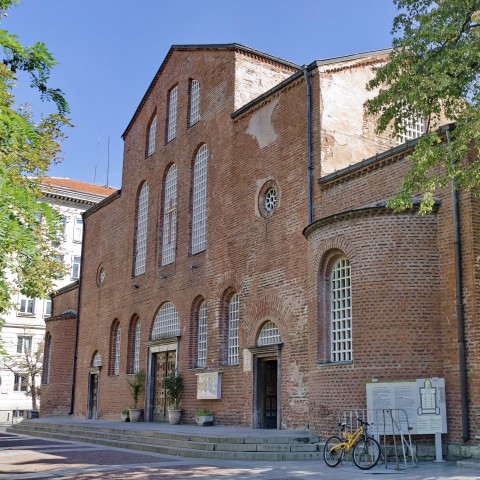
Population
Sofia was heavily populated in the late eighteenth century, home to about 70,000 people. In 1878, the population shrank to only 11,649 people (down from the 19,000 residents eight years prior). However, once Sofia became the new capital of Bulgaria, the number of residents started to increase. Today, the population of Sofia is about 1.23 million—almost 20% of the country’s total population.
Climate
You’ll find this information helpful if you would like to know the best time to visit Sofia. Let’s see what the weather is like in Sofia throughout the year.
The winter months in Sofia are December, January, and February. If you plan to visit Sofia in winter, be prepared for cold temperatures and snowy weather, especially in January and February which are considered the coldest months. The temperature can drop to below -15 °C (5 °F), but is usually about 0 – 5 °C (32 – 41 °F). The snow cover in Sofia lasts about sixty days.
Summers in Sofia (June through August) are sunny and hot. The temperature can exceed 35 °C (95 °F) near the end of July and the beginning of August. This is the time of year when the city receives the most tourists.
Spring and autumn have relatively mild weather, though the weather is more variable and dynamic during these seasons and there could be thunderstorms. There could be fog in Sofia, especially at the beginning of spring and winter, when the weather is subject to drastic changes.
Sofia Travel Tips
If you’re planning to travel to Sofia for the first time, these Sofia travel tips will be very helpful. In the following sections, we’ll discuss currency, accomodation prices, visa rules, food, and transportation.
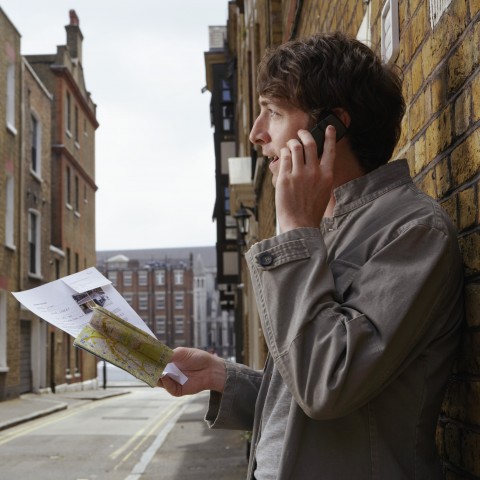
Currency in Bulgaria
The Bulgarian lev is the national currency. 1 euro is pegged to 1.96 leva, which means that 2 Bulgarian leva make roughly 1 euro. So when you’re trying to figure out how much something in Bulgaria costs in euros, the easiest way is to divide the amount by two.
Accomodation Prices in Sofia
The price of your accommodation will depend on the level of luxury you prefer:
- Luxury: There are many five-star and four-star hotels that typically cost $100 or more per night.
- Mid-range: The mid-range price for accommodation, depending on the conditions, ranges from $40 to $80 per night.
- Budget: If you prefer to stay in a hostel, a bed in a dormitory will cost between $5 and $12 per night. If you would like to rent a double bed room, it may cost up to $40.
You can learn some basic words and phrases for talking about accommodation in our lesson What Are Your Accommodation Options in Bulgaria?
Visa Rules
Visa rules in Bulgaria differ based on the nationality of the traveler. If you’re an American, you’ll be allowed to stay for up to ninety days and renew your stay every six months. Bulgaria is not part of Schengen yet, but it is part of the EU. If you hold a valid Schengen visa, you’ll be able to take advantage of a visa-free regime and stay in Bulgaria for up to three months within any six-month period. The same conditions apply to residents of Romania, Cyprus, and Croatia.
There are three types of visas to Bulgaria:
- Visa A for airport transit, which costs $71
- Visa C for a short stay (up to ninety days), for transit or a planned stay, which costs about $71; however, the exact price may vary based on the international agreements
- Visa D for a long stay, which costs $118 when you’re planning a stay of six months, and $236 for a one-year stay
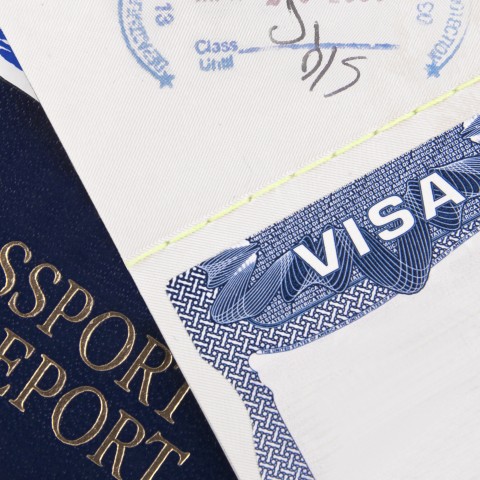
Food in Sofia
Vegetarians will find Bulgaria a great place to dine due to the numerous fruits, vegetables, and dairy products available in the stores and markets. Even vegans can find food here in every season, and there are some restaurants that offer solely vegan food (such as Edgy Veggy, Soul Kitchen, Loving Hut, and Colibri Kitchen).
Keep in mind that Bulgarians are obsessed with dairy foods like yogurt and cheese, which always have to be present on their tables (alongside bread). In vegetarian restaurants, you can order the national Shopska salad with cheese, stuffed peppers, banitsa, cold soup tarator, breaded cheese, guvech, etc.
Like most Balkan nations, the majority of Bulgarians are meat-lovers. If you prefer meat, there are so many dishes to choose from. We recommend you try the kapama, a traditional dish prepared with different types of layered meat and stuffed cabbage leaves. Kebapche (a minced meat stick with spices grilled on a barbeque) and shkembe chorba (tripe soup) are also great choices.
- ➢ BulgarianPod101 provides a helpful list of Bulgarian phrases to use in a restaurant for ordering food, and a list of the most popular Bulgarian foods. Check them out to brush up on some basic Bulgarian before your trip!
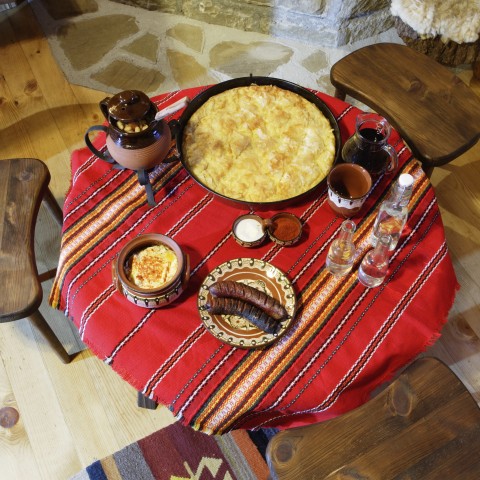
Transportation in Sofia
If you would like to use the cheapest possible transportation in Sofia, then use the Sofia metro. It can be a little bit confusing, but it will take you from the airport to the downtown area for less than 1 euro. This trip will take about thirty minutes. Always have your ticket within easy reach, as the ticket control might show up at any stop to check it.
The other options for transportation include taking a bus or a tram. In these cases, you’ll be able to buy tickets directly from the driver. Make sure to punch your ticket inside the yellow punchers located on the poles of the bus or tram, as this will validate it. Those who don’t have a valid ticket upon control check will be fined 30 leva.
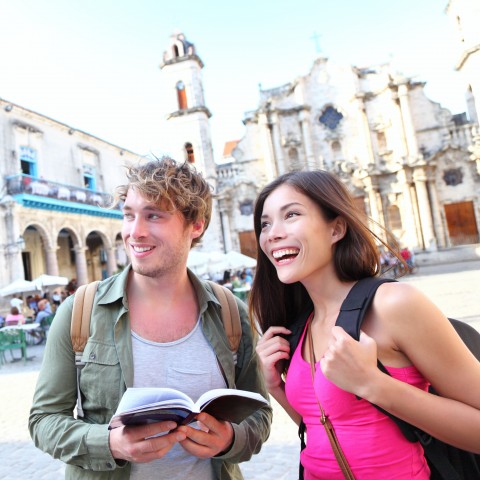
7 Must-See Places in Sofia for a 1-3 Day Trip
It’s time to start our virtual journey of Sofia. To start, let’s look at seven places you must visit in Sofia if you’re short on time!
#1: Boyana Church
In Bulgarian: Боянска църква музей (Boyanska tsarkva muzey)
This medieval Bulgarian Orthodox church is located at the base of Vitosha Mountain, in a region that is also called Boyana.
It was built in three stages, from the tenth century to the middle of the nineteenth century. There are 240 human images and 89 scenes depicted on its walls. UNESCO describes Boyana Church as “one of the most complete and perfectly preserved monuments of east European medieval art,” so it’s definitely worth visiting if you’re interested in medieval culture, architecture, and art. As this church is located in the outskirts of Sofia, it’s good to plan your visit ahead of time.

#2: Alexander Nevsky Cathedral
In Bulgarian: Катедрала “Свети Александър Невски” (Katedrala “Sveti Aleksandar Nevski”)
This Orthodox cathedral was built in a neo-Byzantine style in the nineteenth century and is named after Alexander Nevsky, a Russian saint. It displays the relics of the saint to the left of the altar.
This church is located in the very center of Sofia, just behind the Bulgarian parliament and adjacent to St. Sofia Church. There are many other notable landmarks nearby, so you can plan to visit them all in a single day. Some of these locations include:
- The National Art Academy
- The Sofia Opera and Ballet Hall
- The National Gallery of Foreign Art
- The Monument of the Unknown Soldier
- A park with a small flea market in it
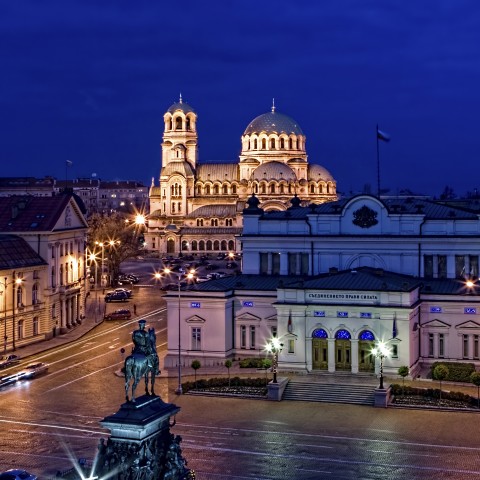
#3: Rotunda of St. George
In Bulgarian: Храм-ротонда “Св. Георги” (Hram-rotonda “Sveti Georgi”)
This small, round church was initially built as a Roman bath in the fourth century when the city of Serdica belonged to the Roman Empire, and was later transformed into an Orthodox church. Located in the city’s center, this is part of a larger archeological complex and is the oldest building in the Bulgarian capital. You’ll be able to see medieval frescoes inside and Roman streets outside.
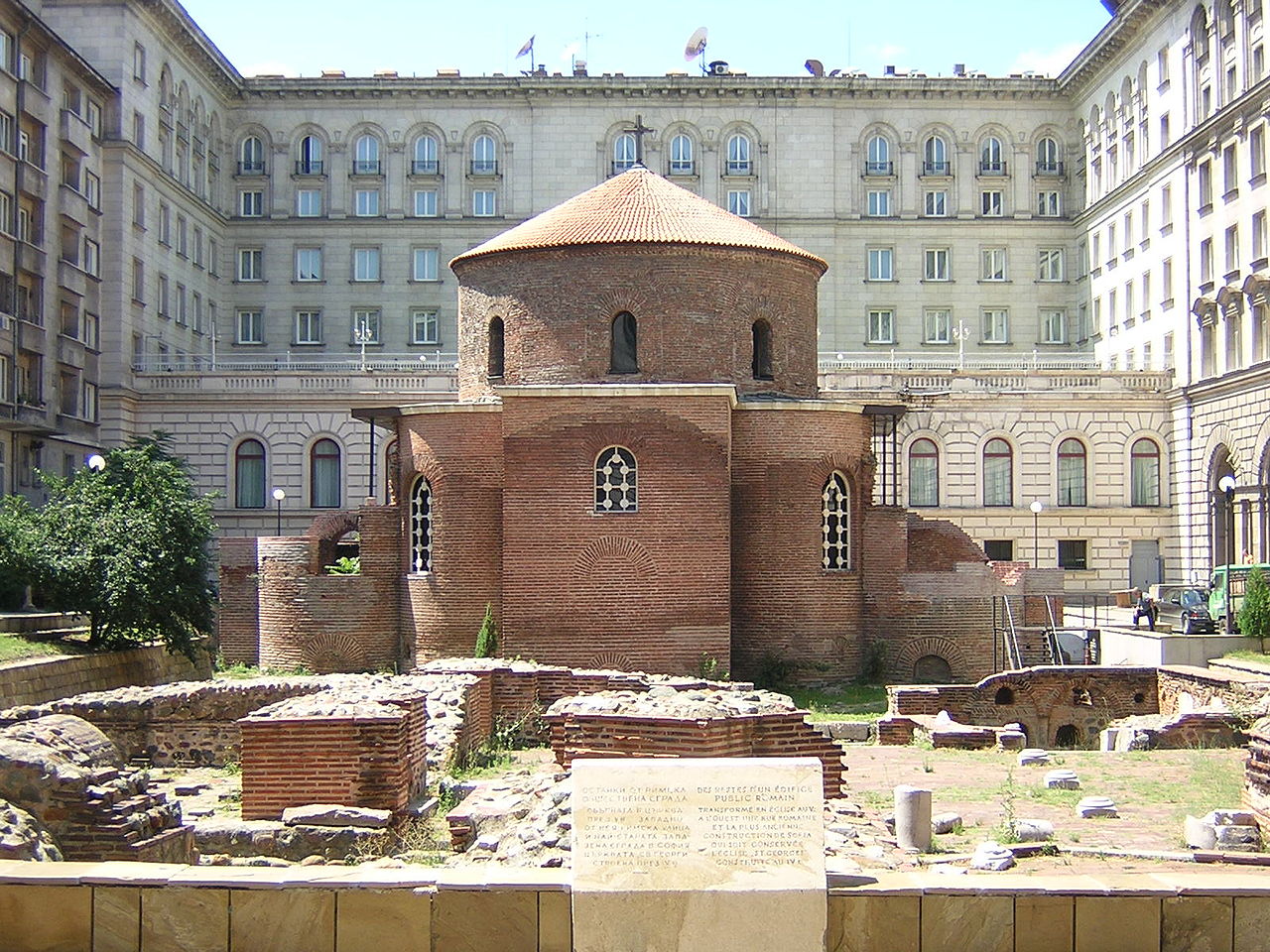
#4: Earth and Man Natural Museum
In Bulgarian: Национален музей “Земята и хората” (Natsionalen muzey “Zemyata i horata”)
This sight would definitely be attractive for geology-lovers as well as children who are interested in science, as it features collections of huge minerals and their derivatives. This museum is located in the neighborhood of Lozenets and is one of the largest mineralogical museums in the world.

#5: Kuklite (The Dolls) Art House
In Bulgarian: Арт къща куклите (Art kashta kuklite)
This is a fascinating place for kids, containing more than 3,000 dolls from all over the world. It also offers weekly workshops explaining how to make a doll, though you’ll need to book in advance to attend one. If you’re traveling to Sofia with children, a visit here would be a great opportunity for them to see porcelain, ritual, modern, vintage, and antique dolls as well as marionettes. Young and old alike will be delighted by these whimsical doll displays!
The museum is located in the center of Sofia, not too far from the Rotunda of St. George. You can add it into your schedule while you visit different landmarks located in this area.
#6: Muzeiko
In Bulgarian: Музейко (Muzeyko)
Muzeiko is a museum for children dedicated to science and the arts. The project cost twenty million dollars to get started, and today features over 130 games and activities that will help your little ones easily learn interesting science facts. There’s also a planetarium that has a show, so you can secure some time for this as well. This kids’ museum is located in the Students’ City neighborhood in Sofia.
#7: National Archaeological Museum
In Bulgarian: Национален археологически музей (Natsionalen arheologicheski muzey)
The National Archaeological Museum is located in the center of Sofia, at the Atanas Burov Square.
This museum housed a mosque in the fifteenth century, but opened as a museum in 1905. It includes ancient Thracian, Greek, and Roman artifacts, as well as medieval books and collections. It’s appropriate for people of all ages who are interested in Bulgarian culture and history. A 3D virtual tour is available online.
Highly Recommended Places for a 4-7 Day Trip (or Longer)
Are you planning a longer stay? Great! This will give you ample time to see even more of the best places to visit in Sofia, Bulgaria. Here are a few that we recommend!
#8: Eagles’ Bridge
In Bulgarian: Орлов мост (Orlov most)
This bridge is located just below the Monument to the Soviet Army in the heart of Sofia. It’s called Eagles’ Bridge because of the four majestic iron eagles located on top of the pillars. Beneath the bridge, there’s a small river flowing. This bridge, together with the Lions’ Bridge, is among the most popular tourist destinations. Don’t miss it if you’re nearby!
#9: Lions’ Bridge
In Bulgarian: Лъвов мост (Lavov most)
This gorgeous bridge is called Lions’ Bridge because of the four metal lions located on each of its pillars. The bridge goes over the Vladaya River, and it’s located on Maria Luiza Boulevard only a few meters from the Ladies Market (in Bulgarian: Женския пазар [Zhenskiya pazar]).

#10: Ivan Vazov National Theater
In Bulgarian: Народен театър Иван Вазов (Naroden teatar Ivan Vazov)
This National Theater is built in a Viennese style and is located in the central City Garden. It’s decorated with statues of Apollo among the muses, which have golden instruments. The first play performed here was Vazov’s The Outcasts. The theater was damaged during World War II, but was later renovated to maintain the architecture and original appearance of the building. This landmark is one of the symbols of Bulgarian culture.
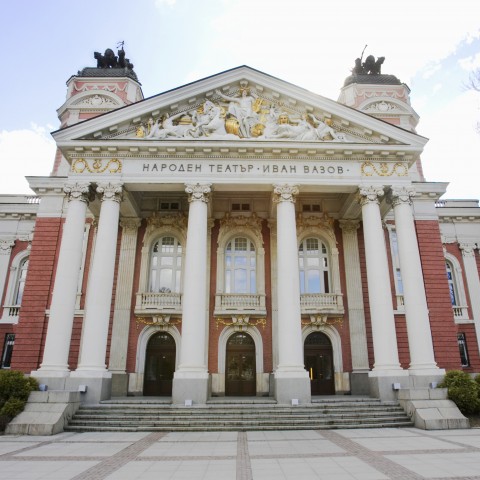
#11: Roman Wall
In Bulgarian: Римска стена (Rimska stena)
The actual Roman ruins can be found inside the hotel lobbies and in the metro. Strangely enough, although it’s called the Roman Wall, this wall was built by the Ottomans in the sixteenth century. It was part of a religious complex, from which only this stone gate remains. It’s located in the Lozenets region near the Saturday “Roman Wall” farmers’ market.

#12: Sofia Opera and Ballet Hall
In Bulgarian: Софийска опера и балет (Sofiyska opera i balet)
This hall has been occupied by the Sofia Opera since 1957. Tickets here are more affordable than those of halls in many other European cities. The building is decorated with multiple figures of performers, namely orchestra musicians and singers. It’s located in the city center.
#13: The Snail House
In Bulgarian: Къща Охлюв (Kashta Ohlyuf)
The Snail House is the most extravagant building in Sofia, located in the district of Simeonovo. This colorful five-story building is built in the form of a giant snail, and its non-standard shape fits well with the surrounding environment. There are small butterflies and ladybugs on the roof, along with some other smaller snails. It was built in 2008 using entirely eco-friendly materials. It features no edges or corners, and no bricks were used in its construction.
#14: Sofia Graffiti Tour
In Bulgarian: София Графити Тур (Sofiya Grafiti Tur)
If you’re a graffiti-lover, this two-hour evening tour (Saturdays and Sundays only) would be an exciting experience. It takes you to the best urban art streets in Sofia with thriving graffiti scenes, and the best part is that you choose how much to pay for the tour!
#15: Borisova Gradina Park
In Bulgarian: Княз-Борисова градина (Knyaz-Borisova Gradina)
This park is named after Bulgarian Tsar Boris III. It’s the most popular, the largest, and the oldest park in Sofia. Among the landmarks located in this park are:
- Lake Ariana
- The national stadium “Vasil Levski”
- The Bulgarian Army Stadium
- The Lake with the Lilies
- Many monuments of prominent Bulgarians
- The Astronomical Observatory of Sofia University
- The Maria-Louisa Swimming Complex
- The Sofia TV Tower
- The Mound of Brotherhood
- The Japanese Corner
#16: Cherni Vrah
In Bulgarian: Черни връх (Cherni vrah)
This is the highest peak of Vitosha Mountain, rising to 2290 meters (about 7513 feet). The best time for hiking this summit is in the summer, and there’s a guided hike offered for inexperienced climbers. Many locals enjoy spending a weekend on Vitosha Mountain while in the capital. This unforgettable hike will reveal amazing views over the city and other mountains.
Bulgarian Survival Phrases for Travelers
To conclude our Sofia travel guide, let’s look at the most important Bulgarian phrases you’ll need to know before you travel to Sofia. You could write these phrases down in your diary or notebook and look them up whenever you need to speak with a Bulgarian, though memorizing them may give you the best experience.
- Hello. – Здравейте (Zdraveyte)
- Thank you. – Благодаря (Blagodarya)
- Goodbye. – Довиждане (Dovizhdane)
- Sorry. – Извинете (Izvinete)
- Very good. (Perfect.) – Много добре (Mnogo dobre)
- I don’t/can’t understand. – Не разбирам (Ne razbiram)
- Where is the restroom? – Къде е тоалетната (Kade e toaletnata)
- How much is it? – Колко струва (Kolko struva)
- I want this. – Искам това (Iskam tova)
- Help! – Помощ (Pomosht)
You can learn more practical phrases in our Survival Phrases lesson series!
How BulgarianPod101 Can Help You Master Bulgarian
BulgarianPod101 is excited to share with you this travel guide containing the best places to visit in Sofia, Bulgaria. Hopefully, this virtual tour around Sofia has given you the motivation and inspiration you need to make plans and visit Sofia yourself.
If you need to learn some more survival phrases or conversational Bulgarian, our MyTeacher service would be of great help to you. You can choose your own private Bulgarian teacher, who will reveal to you the beauty of the language and make it easier for you to start understanding and speaking it.
Before you go, which of these Sofia attractions do you most want to see, and why? We look forward to hearing from you!

Give Your Vocab a Boost: English Words in Bulgarian

If you’ve just started studying the Bulgarian language, you might need additional motivation to cope with the initial shock that this language usually provokes in foreigners. To give you more confidence for your Bulgarian language learning journey, we have prepared this overview of Bulgarian words in English (and vice-versa).
You’ll definitely be surprised to learn how many words are the same in English and Bulgarian. But this is great news for all learners of the Bulgarian language! Why? Because it means you already know all of these words, their meanings, and how to use them in different situations. That’s a great start, isn’t it?
BulgarianPod101 has prepared this guide to help you quickly recognize these well-known words in Bulgarian so that you can easily enrich your vocabulary and have more effective communication with Bulgarians.


Table of Contents
- Why is it Important to Study English Words Used in the Bulgarian Language?
- Why Are There So Many English Words in Bulgarian?
- The Use of Foreign Words in Bulgarian
- English Words Used in Bulgarian Business Culture
- English Words Used in the Bulgarian IT Sector
- English Words Used in Professional Terminology
- World-Famous Celebrity Names Translated to Bulgarian
- How BulgarianPod101 Can Help You Learn More Bulgarian
Why is it Important to Study English Words Used in the Bulgarian Language?
Let’s start with a quote by the great Bulgarian writer, Yordan Yovkov:
“The word is a scary thing. It contains the means of expression of all the arts: colors, lines, shapes, sounds, movements—everything, as long as you can handle these riches.”
View the Bulgarian language as a treasure trove and each new word you learn as a golden coin you have discovered. In this sense, BulgarianPod101.com will help you become rich with scores of golden coins—we’ll even show you how best to use them.
This form of treasure hunting can be intimidating, but picking up a few English loanwords in Bulgarian is a great place to start. Because you’re already familiar with the meaning of these words, you can begin applying them to your Bulgarian conversations right away.
So let’s get to it!
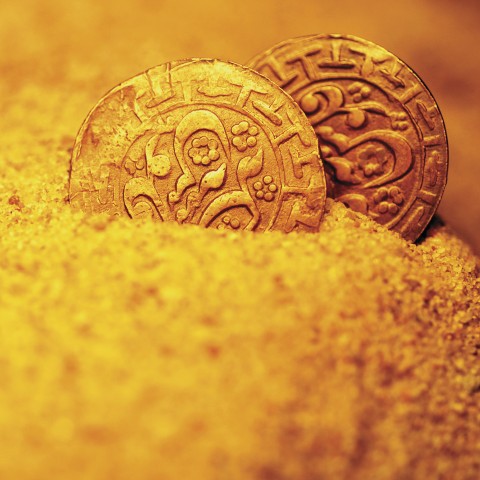
Why Are There So Many English Words in Bulgarian?
Globalization is the main reason there are so many English words in the Bulgarian language. Recent technologies such as the World Wide Web, social media, and global trading mediums facilitate the global spread of English words. Virtual communication encourages the use of many English words, which have become widely used in both spoken and written Bulgarian.
As a result, many English words are used in the Bulgarian political, social, cultural, and economic spheres and people use them to describe services, products, and business information. There are also many professional terms in Bulgarian that originate from English vocabulary.

The Use of Foreign Words in Bulgarian
Like most other languages, Bulgarian adopts many foreign words for regular use in the language. When a foreign word is used often enough for a long enough period of time, it’s common for Bulgarians to perceive that word as being native to Bulgarian. For example, there are many Turkish words that are so widely used by Bulgarians that many of them don’t even realize they’re foreign.
Such Turkish words include:
- чешма (cheshma) – faucet
- памук (pamuk) – cotton
- зехтин (zehtin) – olive oil
There are so many Turkish words in Bulgarian because Bulgarians were under the Turkish yoke for five centuries. The Russian, French, and German languages later influenced Bulgarian as well.
Here are some examples of Russian words in the Bulgarian language:
- дружба (druzhba) – friendship
- хазяин (hazyain) – house owner
- болшинство (bolshinstvo) – majority
- съблюдавам (sablyudavam) – observe
- милосърдие (milosardie) – mercy
Here are examples of French words in the Bulgarian language. You’ll notice that these words are also used in English.
- трофей (trofey) – trophy
- меню (menyu) – menu
- майонеза (mayoneza) – mayonnaise
- бюро (byuro) – buro
- булевард (bulevard) – boulevard
Here are examples of German words in the Bulgarian language:
- вафла (vafla) – waffle
- курорт (kurort) – resort
- табела (tabela) – signboard
- ауспух (auspuh) – muffler
Because of the common history between Bulgaria and Greece, there are many Greek words in the Bulgarian language, as well. Here are some of them:
- евтин (eftin) – cheap
- пирон (piron) – nail
- ангел (angel) – angel
- килер (kiler) – closet
- стомах (stomah) – stomach
- тиган (tigan) – frying pan
- тетрадка (tetradka) – notebook
After communism fell in 1990, Bulgaria opened up to the Western world—its food, music, culture, markets, and language. Naturally, more and more English words entered the Bulgarian language and even began to replace some Bulgarian words. Here are some examples:
| Original Bulgarian Word/Phrase | English Replacement | Meaning |
| търсене в глобалната мрежа (tarsene v globalnata mrezha) | сърфиране в нета (sarfirane v neta) | surfing the Net |
| разговори (razgovori) | чатове (chatove) | chats |
| сприятеляване (spriyatelyavane) | aдване на френдове (advane na frendove) | to add friends |
| опит (оpit) | eкспириънс (ekspirians) | experience |
| публикувам информация във Фейсбук (publikuvam informatsiya vav Feysbuk) | поствам (postvam) | to post |
| изключвам от приятелите си (izklyuchvam ot priyatelite si) | ънфрендвам (аnfrendvam) | to unfriend |
English Words Used in Bulgarian Business Culture
Each year, thousands of new foreign words enter the Bulgarian language. Some of them may not be well-accepted by people and will be forgotten over time. Others are widely used and end up becoming a part of the daily or business language. Over time, some of them can even take the place of existing Bulgarian words.
Below is a list of twenty Bulgarian words replaced by English words in the business world. People who know English will find this information very useful when speaking with their Bulgarian business partners.

| Original Bulgarian Word/Phrase | English Replacement | Meaning |
| започвам (zapochvam) | стартирам (startiram) | I start |
| в брой (v broy) | в кеш (v kesh) | in cash |
| връзка (vrazka) | контакт (kontakt) | contact |
| положение (polozhenie) | ситуация (situatsiya) | situation |
| място (myasto) | локация (lokatsiya) | location |
| среща с журналисти (sreshta s zhurnalisti) | брифинг (brifing) | briefing |
| финансова проверка (finansova proverka) | одит (odit) | audit |
| наблюдение (nablyudenie) | мониторинг (monitoring) | monitoring |
| майстор-готвач (maystor-gotvach) | мастър-шеф (mastar-shef) | chef |
| курс (kurs) | мастър-клас (mastar-klas) | master class |
| изложба (izlozhba) | експозиция (ekspozitsiya) | exposition |
| събитие (sabitie) | евент (event) | event |
| представяне (predstavyane) | презентация (prezentatsiya) | presentation |
| осъществявам (osashtestvyavam) | реализирам (realiziram) | I realize / I achieve |
| представление (predstavlenie) | шоу (shou) | show |
| съдържание (sadarzhanie) | контент (kontent) | content |
| желание (zhelaniye) | мотивация (motivatsiya) | motivation |
- → If you would like to learn useful Bulgarian phrases to use in your conversations with Bulgarian business partners, you can take a look at our list of Essential Phrases for Doing Business Successfully.
- → Also see our free vocabulary lists on Jobs / Work and The Workplace for some practical supplementary vocab!
English Words Used in the Bulgarian IT Sector
The Bulgarian IT sector is probably the field that’s most influenced by English terminology. This is understandable, since computer science borrows heavily from the English language. As a result, foreigners will be able to quickly recognize these famous English words in Bulgarian. Take a look at these examples, keeping in mind that the Bulgarian versions are pronounced almost identically to the original English words.
| English Word | Bulgarian Equivalent |
| organizer | органайзер (organayzer) |
| timer | таймер (taymer) |
| scanner | скенер (skener) |
| printer | принтер (printer) |
| router | рутер (ruter) |
| monitor | монитор (monitor) |
| sensitive | сензитивен (senzitiven) |
| canceling | канселиране (kanselirane) |
| to click | кликам (clikam) |
| developer | дивелъпър (diveloper) |
| digital | дигитален (digitalen) |
| header | хедър (heder) |
| font | фонт (font) |
| user | юзър (user) |
- → Here is another useful list of Bulgarian Words Related to Computers.

English Words Used in Professional Terminology
There are many newly coined words and phrases related to professional terminology that originate from the English language. Here is a list of some of the most popular English words in Bulgarian that may sound very familiar to you.

| English Word | Bulgarian Equivalent |
| voucher | ваучер (vaucher) |
| action | екшън (ekshan) |
| integration | интеграция (integratsiya) |
| globalization | глобализация (globalizatsiya) |
| anti-globalism | антиглобализъм (antiglobalizam) |
| Euroscepticism | евроскептицизъм (evroskeptitsizam) |
| dollarization | доларизация (dolarizatsiya) |
| sponsor | спонсор (sponsor) |
| image | имидж (imidzh) |
| logo | лого (logo) |
| training | тренинг (trening) |
| trend | тренд (trend) |
| media | медия (mediya) |
| weekend | уикенд (uikend) |
- → Want to learn more vocabulary related to the professional world? You can get acquainted with 20 Common Bulgarian Words for Occupations on our website.
World-Famous Celebrity Names Translated to Bulgarian
Have you ever wondered how Bulgarians pronounce the names of world-famous celebrities? Then you’re going to enjoy this section!
Celebrity names are most often transliterated into Bulgarian instead of receiving a brand-new translation. We’ll provide you with some examples of how this works, using the names of several popular celebrities.
- ★ Before proceeding, we would like to give you a task: Cover the right side of the screen with a sheet of paper in order to hide the English translation of the names, and read them in Bulgarian on the left side. Try to guess who they are and then check the answers in the right column. Good luck!

| Bulgarian Names of Celebrities | English Names of Celebrities |
| Бийонсе | Beyoncé |
| Дуейн Джонсън | Dwayne Johnson |
| Тейлър Суифт | Taylor Swift |
| Дженифър Анистън | Jennifer Aniston |
| Анджелина Джоли | Angelina Jolie |
| Том Ханкс | Tom Hanks |
| Брад Пит | Brad Pitt |
| Риана | Rihanna |
| Уил Смит | Will Smith |
| Леонардо ди Каприо | Leonardo DiCaprio |
| Ким Кардашян | Kim Kardashian |
| Джони Деп | Johnny Depp |
| Джъстин Бийбър | Justin Bieber |
| Бен Афлек | Ben Affleck |
| Мадона | Madonna |
| Джулия Робъртс | Julia Roberts |
How BulgarianPod101 Can Help You Learn More Bulgarian
BulgarianPod101 was created with one goal in mind: to help people learn Bulgarian more easily. We know how tough a foreign language can seem, but we believe that the process of learning can be fun and simple. In fact, that’s why we put together this overview of English words in the Bulgarian language—this way you can start adding words you already know to your Bulgarian vocabulary arsenal. And as you can see, they are not few!
If you believe that at this stage of your learning, you need a professional native Bulgarian teacher to give you individualized assignments and guidance, then you might be interested in our MyTeacher service for Premium PLUS members.
We hope that you were able to successfully complete the task about celebrity names. If not, don’t get discouraged—just head over to our Alphabet lesson where you’ll find our Free Guide to Beginner Bulgarian.
Before you go, please share with us whether you found this article useful and how you did guessing the celebrity names. We’re always happy to read your comments and help out the best we can!

What Do Bulgarian Quotes Say About Life & Love?

Sometimes, life is not easy! Everyone has gone through many challenges in life. In such moments, it is helpful to know that other people have gone through the same things and overcame them successfully.
In this article, we’ll show you Bulgarian quotes from some of the most popular Bulgarian heroes, poets, writers, and fighters for Bulgarian liberty who lost their lives without seeing their most cherished dream coming true. Their lives weren’t easy either, and their wisdom inspires the Bulgarian people to this day.
The quotes in this article are from well-known Bulgarians who loved their country. One thing is for sure: after reading these inspirational Bulgarian quotes, you’ll definitely walk away with a better understanding of Bulgarian history and culture, which will help you a lot in your language studies. You’ll also get better acquainted with the authors of these amazing quotes and learn more about their life and works.
BulgarianPod101 has decided to divide the Bulgarian quotes in this comprehensive guide into different categories, from success to friendship and everything in-between. This will make it easier for you to find your favorite ones. Each of these Bulgarian expressions and quotes has been translated into English, which gives you the opportunity to learn more Bulgarian words and add them to your daily practice. So let the inspiration begin now!
 Table of Contents
Table of Contents
- Quotes About Bulgaria
- Quotes About Life
- Quotes About Love
- Quotes About Family
- Quotes About Friendship
- Quotes About Work
- Quotes About Success
- Quotes About Language Learning
- How Can BulgarianPod101 Help You Learn Bulgarian?
1. Quotes About Bulgaria
We’ll start with quotes about Bulgaria simply because all of the legendary Bulgarians loved their country. Most of them died fighting to see it free from the Ottoman yoke. Some of their sayings reveal that their love for Bulgaria surpassed their love for their own families. Many of them were killed before they reached forty years of age. Let’s see how their deep love for Bulgaria is reflected in these quotes.
#1
| Bulgarian | Опознай Родината, за да я обикнеш!(Opoznay Rodinata, za da ya obiknesh!) |
| Author | Aleko Konstantinov |
| Meaning | “Get to know your motherland and you will fall in love with it!” |
| Aleko Konstantinov is a popular Bulgarian writer who lived in the nineteenth century and whose pseudonym was Щастливеца (Shtastlivetsa), meaning “The Lucky Man.” His most popular books are Бай Ганьо (Bai Ganyo) and the travelogue До Чикаго и назад (To Chicago and Back). Interestingly, the Lucky Man was not so lucky, as he was mistakenly killed by assassins at the age of 34, having swapped seats with a politician friend while on a journey. This quote of his is so popular that it can even be seen on some road signs while you travel across Bulgaria. Bulgaria boasts a beautiful and diverse natural environment, which looks like a piece of paradise. It’s worth traveling across the mountains, the rural areas, and the ancient cities to watch the wildlife and admire the crystal-clear rivers, the Black Sea resorts, and the majestic natural scenery. There are also great fields of wheat, corn, sunflowers, lavender, and vines. If you get to know Bulgaria, you’ll definitely fall in love with it! | |
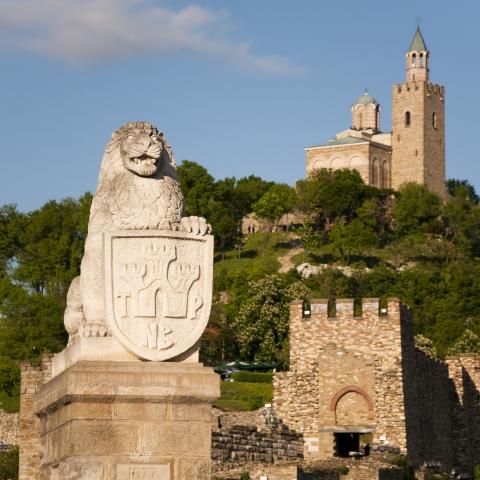
#2
| Bulgarian | Ако спечеля, печеля за цял народ—ако загубя, губя само мене си.(Ako spechelya, pechelya za tsyal narod—ako zagubya, gubya samo mene si.) |
| Author | Vasil Levski |
| Meaning | “If I win, I win for the whole nation—if I lose, I only lose myself.” |
| Vasil Levski is a national hero, also known as the Apostle of Freedom. He was a founder of the Internal Revolutionary Organization, whose goal was to unite all Bulgarians in the fight against the Ottoman Empire. This quote reveals his belief that his death would not affect the nation, but that his victory would give Bulgaria its long sought-after freedom. He was killed before seeing his dreams come true, but his death was a loss for the whole nation. Levski remains one of Bulgaria’s most-loved national heroes. | |
#3
| Bulgarian | Предателите на Отечеството не заслужават милост.(Predatelite na Otechestvoto ne zasluzhavat milost.) |
| Author | Stefan Stambolov |
| Meaning | “The Fatherland’s traitors deserve no mercy.” |
| Stefan Stambolov is probably one of the most popular Bulgarian politicians of the past, and he was also a poet, a journalist, and a revolutionist. After the liberation of Bulgaria, he was nominated a Prime Minister and regent. He, too, was killed by a group of assassins. His quote shows that he placed Bulgaria ahead of everything else and had no tolerance for traitors of the country. That’s probably why he was so loved by some people and hated by others. | |
#4
| Bulgarian | Главата ми да отсекат, пак ще викам: “Да живее България!(Glavata mi da otsekat, pak shte vikam: “Da zhivee Balgariya!”) |
| Author | Nikolay Haytov |
| Meaning | “Even if they cut off my head, I will still shout: ‘Long live Bulgaria!’” |
| Nikolay Haytov was a popular fiction writer who lived in the twentieth century. This quote reveals his patriotism. Apart from his popular books, he wrote ten plays, 800 articles, and reviews. He also saw success as a screenplay writer, with his films and TV series being very popular. It might be interesting for you to watch some of the most popular ones, among which are: The Goat Horn (1972)—which is considered one of the outstanding achievements of Bulgarian cinema—Manly Times (1977), and the Captain Petko Voivode series. | |
2. Quotes About Life
For most popular Bulgarian heroes, life meant Bulgaria and Bulgaria meant life. Still, there’s no shortage of Bulgarian quotes about life that touch on the various experiences and lessons we learn as we live.
#5
| Bulgarian | Човек е дълго изречение, написано с много любов и вдъхновение, ала пълно с правописни грешки.(Chovek e dalgo izrechenie, napisano s mnogo lyubov i vdahnovenie, ala palno s pravopisni greshki.) |
| Author | Jordan Radichkov |
| Meaning | “A man is a long sentence, written with much love and inspiration, but full of spelling errors.” |
| Jordan Radichkov was another great Bulgarian writer of the twentieth century. He was also a dramatist, a screenwriter, and a representative of magical realism. This satirical quote reveals the essence of life in one short but wise saying. | |
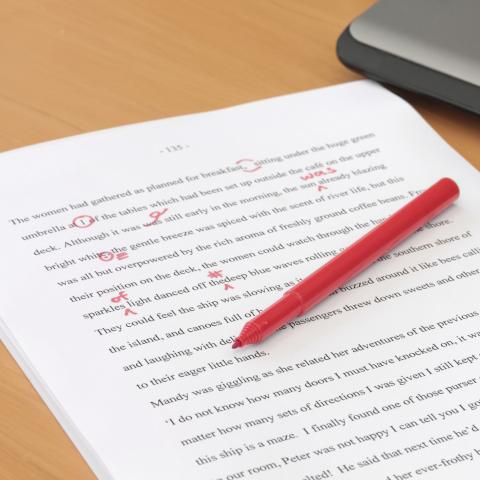
#6
| Bulgarian | Човек е роб на свойта воля, но господар на своето дело.(Chovek e rob na svoyta volya, no gospodar na svoeto delo.) |
| Author | Colonel Boris Drangov |
| Meaning | “The man is a slave of his own will, but a master of his own work.” |
| Colonel Boris Drangov was a Bulgarian officer, a military educator, and a prolific writer who lived during the nineteenth and twentieth centuries. This amazing quote was written by him to his fiancée instead of a love letter. Later, he became a faithful husband and a loving father, as well as a talented writer. He participated in both Balkan wars and was a commander during World War I. He was killed in the war at the age of 45. | |
#7
| Bulgarian | Идеалът на земното щастие е в труда, в здравето и в природата.(Idealat na zemnoto shtastie e v truda, v zdraveto i v prirodata.) |
| Author | Ivan Vazov |
| Meaning | “The ideal of earthly happiness is in work, in health, and in nature.” |
| Ivan Vazov is also known as the Patriarch of Bulgarian Literature. He lived from the middle of the nineteenth century to the first quarter of the twentieth century, so his poems reflect two historical epochs: the Renaissance and post-liberation Bulgaria. This awarded author reveals what happiness is for him. It’s interesting to note that he lists not only health and nature as being important for people, but also work; he considered work to be a blessing leading to happiness. | |
#8
| Bulgarian | Такава е човеческата натура! Хората забравят всичко, даже и угризението на своята собствена съвест.(Takava e chovecheskata natura! Horata zabravyat vsichko, dazhe i ugrizenieto na svoyata sobstvena savest.) |
| Author | Lyuben Karavelov |
| Meaning | “Such is human nature! People forget everything, even the remorse of their own conscience.” |
| Lyuben Karavelov, who lived in the nineteenth century, is a national hero and was a fighter for the liberation of Bulgaria from the Ottoman rule. He was also a poet, ethnographer, writer, encyclopedist, and journalist. This popular quote is from his short novel Old Time’s Bulgarians, where it serves as the conclusion of the long narrative. Fun fact: The best character in this novel is an old man named Liben, who says: “Nothing is better in this world than doing good.” | |
3. Quotes About Love
All of us need to love and be loved. Learn what some famous Bulgarians thought about this topic through these Bulgarian quotes about love.

#9
| Bulgarian | Да обича, това е работа на душата. Не се бъркайте в нейните работи.(Da obicha, tova e rabota na dushata. Ne se barkayte v neynite raboti.) |
| Author | Petar Deunov |
| Meaning | “To love is the work of the soul. Don’t interfere in its work.” |
| Peter Deunov, who lived 100 years ago, founded the White Brotherhood religious doctrine and was called the “Master” by his followers. He was also a popular Bulgarian philosopher. The Bulgarian Orthodox Church declared his doctrine to be heretical because of its connection to occultism. Some of his teachings include the belief that light is alive and has consciousness; he believed that atoms have consciousness, as well. Knowing these facts, it’s easier to understand his quote about love. | |
#10
| Bulgarian | Най-силна е онази любов, която може да проявява слабости.(Nay-silna e onazi lyubov, koyato mozhe da proyavyava slabosti.) |
| Author | Elin Pelin |
| Meaning | “The strongest is the love that can show weakness.” |
| The author’s real name is Dimitar Stoyanov, but all Bulgarians know him by his pen-name Elin Pelin. He was a Bulgarian writer, also known as the Singer of the Bulgarian village. This is because the Bulgarian village takes the central place in his works. Along with this quote, there is one more famous love quote from his short novel Geratsite, where Elin Pelin wrote words that apply to today: Любовта бяга от човешките сърца, хората не са вече братя. (Lyubovta byaga ot choveshkite sartsa, horata ne sa veche bratya.) This means: “Love runs away from the human hearts, people are no longer brothers.” | |
#11
| Bulgarian | На любовта трябва да се наложи карантина, както на холерата и чумата, от които Тя прави по-големи опустошения.(Na lyubovta tryabva da se nalozhi karantina, kakto na holerata i chumata, ot koito Tya pravi po-golemi opustosheniya.) |
| Author | Ivan Vazov |
| Meaning | “Love must be quarantined, as cholera and plague, from which the Love makes greater devastation.” |
| This quote from the great writer Ivan Vazov is found in the narration of Kardashev on the Hunt. In it, a man named Kardashev says the following: “To you poets, love in the world may be much needed as the main building block in your creations; but humanity doesn’t need it. A person doesn’t need love but reason and bills to be happy. Love is an enemy of peace and human virtue.” These words are then followed by our featured quote. These are the words of Vazov’s character who denies the necessity of love; Vazov himself doesn’t agree with this philosophy. Ivan Vazov wrote many love poems, one of which is named Love is Needed. | |
#12
| Bulgarian | Никога не ги карай да те обичат, дете мое. Настоявай да те оставят. И знай, че този, който устои и остане, те обича истински.(Nikoga ne gi karay da te obichat, dete moe. Nastoyavay da te ostavyat. I znay, che tozi, koyto ustoi i ostane, te obicha istinski.) |
| Author | Dimitar Talev |
| Meaning | “Never make them love you, my child. Insist that they leave you. And know that he, who endures and stays, really loves you.” |
| The life of the famous Bulgarian writer Dimitar Talev was not easy. His father died when he was only nine; after that, Talev survived three wars, including World War I. Then, because of his patriotic views, the communists arrested him and sent him to the labor camps. The grief and hunger of these years are reflected in his works. This unique love quote is from his historical novel Железният светилник (Zhelezniyat svetilnik), or The Iron Candlestick, which is part of a tetralogy that also includes The Bells of Prespa, Ilinden (St. Ilia’s Day), and Your Voices I Hear. | |
- ➢ Want more? BulgarianPod101 has a list of some great romantic Bulgarian love quotes on our website.
4. Quotes About Family
Not all Bulgarian national heroes were able to have their own families, as they were killed very young in the fight for Bulgaria’s liberation. However, all of them respected and deeply loved their parents, as seen in the following Bulgarian quotes about family. Maybe we can take something from these wise words.
#13
| Bulgarian | Този, който не обича майка си, баща си, жена си и децата си, то той не обича и своето Отечество!(Tozi, koyto ne obicha mayka si, bashta si, zhena si i detsata si, to toy ne obicha i svoeto Otechestvo!) |
| Author | Hristo Botev |
| Meaning | “He who does not love his mother, his father, his wife, and his children, does not love his Fatherland either!” |
| Hristo Botev was a Bulgarian national hero, as well as a poet, a publicist, and a revolutionary killed by the Ottoman Army at the age of 28. Although Botev wasn’t able to write many poems during his short life, his works are considered the best of Bulgarian Renaissance literature. He was a patriot who was very closely attached to his family. This is reflected not only in this quote, but also in some of his poems: To My Mother, To My Brother, To My First Love. | |
#14
| Bulgarian | Стари обичаи не презирай! Бащино огнище не забравяй!(Stari obichai ne preziray! Bashtino ognishte ne zabravyay!) |
| Author | Georgi Sava Rakovski |
| Meaning | “Do not despise old customs! Don’t forget your father’s fireplace!” |
| Georgi Sava Rakovski is mostly known as the founder of the organized national revolutionary struggle for the liberation of Bulgaria, but he was also an historian, ethnologist, ethnographer, journalist, publicist, writer, and poet. He was one of the few patriots not killed during the wars, but instead died at the age of 46 from tuberculosis. His wisdom can be seen in this short quote that reminds us to keep the customs and beliefs of our parents, as this will help us survive as a nation. | |
- ➢ There are ten more great Bulgarian quotes about family on our website. Check them out for more words of wisdom!
5. Quotes About Friendship
Vasil Levski had a lot to say about friendship during those uncertain times when people weren’t sure who was a friend and who was a traitor or enemy.
#15
| Bulgarian | Всичко се състои в нашите задружни сили.(Vsichko se sastoi v nashite zadruzhni sili.) |
| Author | Vasil Levski |
| Meaning | “Everything is in our joint forces.” |
| Levski’s goal of winning Bulgaria’s liberation would have been impossible to accomplish without the joint forces of the entire nation. That’s why he went from village to village and from city to city all across the country to organize secret committees. He believed that the entire nation must be united to win its liberation. This quote can also apply, in a broader sense, to faithful friends. | |
#16
| Bulgarian | Време за помагане е сега—закъснелите не ще бъдат наши приятели.(Vreme za pomagane e sega—zakasnelite ne shte badat nashi priyateli.) |
| Author | Vasil Levski |
| Meaning | “The time to help is now—those who are late will not be our friends!” |
| This is another quote related to the fight for liberation. It means that Levski’s so-called friends, should they fail to support the fight at its most difficult, would no longer be considered friends. There’s an English saying that describes this quote well: False friends are worse than open enemies. | |
#17
| Bulgarian | Трябва изпит за всеки. Защото има примери: Днес е човек, а утре – магаре.(Tryabva izpit za vseki. Zashtoto ima primeri: Dnes e chovek, a utre – magare.) |
| Author | Vasil Levski |
| Meaning | “There should be a test for everyone. Because there are examples: Today he is a human and tomorrow he is a donkey.” |
| The biggest advantage of a true friendship is that you can count on your friend in difficult moments. False friends who won’t encourage or support you during those times are like donkeys, as Vasil Levski said in this quote. | |
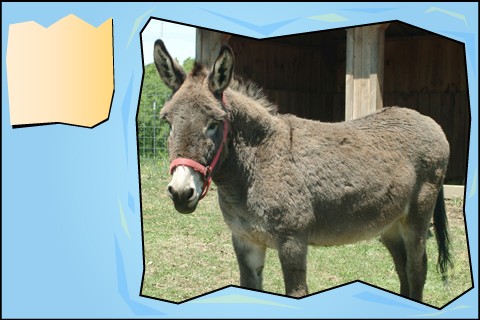
- ➢ If you need more inspirational friendship quotes, we have you covered.
6. Quotes About Work
To make sure we offered you the best Bulgarian quotes concerning work, we chose two from the great Bulgarian Colonel Boris Drangov—who knew how to work and do his duty faithfully—and one quote from the philosopher Petar Deunov.
#18
| Bulgarian | Работи спокойно, отчетливо, разумно и толкова по-спокойно, колкото опасността е по-близо.(Raboti spokoyno, otchetlivo, razumno i tolkova po-spokoyno, kolkoto opasnostta e po-blizo.) |
| Author | Colonel Boris Drangov |
| Meaning | “Work calmly, clearly, reasonably, and calmer as the danger is getting closer.” |
| What a great thought! When the danger is closer, there should be less panic and stress. In order to overcome the danger, just work calmer than ever! | |
#19
| Bulgarian | За да служиш достойно и полезно, отречи се от себе си.(Za da sluzhish dostoyno i polezno, otrechi se ot sebe si.) |
| Author | Colonel Boris Drangov |
| Meaning | “To serve worthily and usefully, renounce yourself.” |
| This thought is undoubtedly a reference to Christianity and the sacrifice of Christ. According to the Bible, God, in the face of Christ, has renounced Himself for the good of man and calls us to do so. Colonel Boris Drangov followed this Christian principle during his life, and maybe this is why he became a great man! | |
#20
| Bulgarian | Единственото нещо, което повдига човека, е работата. За да се проявите в каквото и да е направление, трябва да работите. Работата е свещено нещо. Работа, вършена с любов, е щастие.(Edinstvenoto neshto, koeto povdiga choveka, e rabotata. Za da se proyavite v kakvoto i da e napravlenie, tryabva da rabotite. Rabotata e sveshteno neshto. Rabota, varshena s lyubov, e shtastie.) |
| Author | Petar Deunov |
| Meaning | “The only thing that elevates the person is work. You need to work in order to succeed in any direction. Work is a sacred thing. Work done with love is happiness.” |
| According to this Bulgarian philosopher, work is needed to prevent people’s destruction. If you would like to find your happiness in work, do what you love to do. Indeed, if you love your work, it won’t be a burden to you. For this reason, many people at some stage in their lives change their professions, seeking the work they love most, which brings them true satisfaction! | |
7. Quotes About Success
The following success quotes represent the strategies of young Bulgarians who achieved success in different business spheres in Bulgaria. These words could serve as a great motivation to other young people who have not yet entered the workforce.

#21
| Bulgarian | Ако спрем за момент да се оплакваме и вземем живота в свои ръце, всичко ще стане по-лесно и по-ясно!(Ako sprem za moment da se oplakvame i vzemem zhivota v svoi ratse, vsichko shte stane po-lesno i po-yasno!) |
| Author | Katerina Arsova |
| Meaning | “If we stop complaining for a moment and take our lives in our own hands, everything will become easier and clearer!” |
| Complaining makes things harder than they actually are. People who don’t want to assume an active role in their own lives tend to complain, but this is a surefire way to fail. | |
#22
| Bulgarian | Смисълът на израстването е моята мотивация за успех.(Smisalat na izrastvaneto e moyata motivatsiya za uspeh.) |
| Author | Aleksandra Zhekova |
| Meaning | “The meaning behind growth itself is my motivation for success.” |
| Motivation to be successful is a great power that should be used during your journey toward a successful career. | |
#23
| Bulgarian | Никога не изневерявайте на специфичния си талант.(Nikoga ne izneveryavayte na spetsifichniya si talant.) |
| Author | Radoslav Gizgindzhiev |
| Meaning | “Never betray your specific talent.” |
| Every person has a specific talent (or talents) that can lead them to success if he or she develops that talent. | |
#24
| Bulgarian | Възрастта не е определящ фактор, а духът!(Vazrastta ne e opredelyasht faktor, a duhat!) |
| Author | Evgeniya Peeva |
| Meaning | “Age is not the determining factor, but the spirit is!” |
| There’s a wise saying that goes: A person learns while he or she is alive. Whatever your age, never stop developing your skills and knowledge, and your spirit will stay forever young! | |
#25
| Bulgarian | Просперитетът не е функция на местоположението, а начин на мислене.(Prosperitetat ne e funktsiya na mestopolozhenieto, a nachin na mislene.) |
| Author | Neli Georgieva |
| Meaning | “Prosperity is not a function of location, but a way of thinking.” |
| No matter where you live, if you believe in your strength, you will succeed! Just consider yourself a winner before the end of the battle and you will become a winner regardless of the circumstances. | |
8. Quotes About Language Learning
BulgarianPod101 has compiled a few quotes about language learning from popular Bulgarians. We hope that these words motivate you to proceed in your Bulgarian studies, regardless of your age or skill level. Let these quotes shine along your path to a deeper understanding of the Bulgarian language and culture.
#26
| Bulgarian | Науката е светилото на един народ, литературата е животът му.(Naukata e svetiloto na edin narod, literaturata e zhivotat mu.) |
| Author | Ivan Vazov |
| Meaning | “Science is the luminary of a nation, and its literature is its life.” |
| You’ll never be able to fully understand Bulgarian literature if you read the translated versions. To really extend your knowledge and learn more about the Bulgarian culture and view of life, start reading Bulgarian books in the original language. It could be hard at first, and there will be many unknown words that you’ll have to search for in a dictionary, but it will be a rewarding exercise that will greatly accelerate your language knowledge. | |
#27
| Bulgarian | И ний сме дали нещо на света, на славяни книга да четат.(I niy sme dali neshto na sveta, na slavyani kniga da chetat.) |
| Author | Ivan Vazov |
| Meaning | “We have also given something to the world, to the Slavic people to read books.” |
| With this quote, Ivan Vazov says that the early Cyrillic alphabet was developed during the First Bulgarian Kingdom; later, Cyril’s and Methodius’ disciples Kliment and Naum finalized and spread it among the Slavic nations. These nations now have a script thanks to these self-sacrificing Bulgarians. | |
#28
| Bulgarian | Бъди строг, но най-първо и най-много към себе си!(Badi strog, no nay-parvo i nay-mnogo kam sebe si!) |
| Author | Colonel Boris Drangov |
| Meaning | “Be strict, but firstly and mostly toward yourself!” |
| Self-discipline—that is what, according to Colonel Boris Drangov, leads to success in whatever you do, including your language learning. Be a very strict language teacher to yourself and you’ll soon notice your improvement. | |
- ➢ Want more inspirational Bulgarian quotes about language learning? Check out our related vocabulary list!
9. How Can BulgarianPod101 Help You Learn Bulgarian?
We hope you enjoyed this overview of some of the most fascinating Bulgarian quotes. We believe that they can motivate you to start reading Bulgarian books on your own to obtain even deeper knowledge of Bulgarian culture, history, customs, and characteristics.
If you would like to have a teacher by your side, you can choose one through our MyTeacher feature, which allows you to take advantage of the professional guidance of experienced native Bulgarian teachers.
BulgarianPod101 is always here for you! We want to help you learn more intriguing and motivating facts about the Bulgarian language.
Before you go, please share your favorite quote with us in the comments. We eagerly look forward to hearing from you!

A Stepping Stone to Freedom: Liberation Day in Bulgaria
Independence did not come easily for Bulgaria. The nation only gained its freedom after hundreds of years of oppression, and the process was a lengthy and trying one. One event in particular helped propel the nation toward its goal: the nation’s liberation from the Ottoman Empire in 1878.
In this article, you’ll learn all about Bulgarian Liberation Day (also known as Bulgaria’s Day of Liberation from Ottoman Domination) and how it’s celebrated today. Let’s get started!

1. What is Liberation Day?
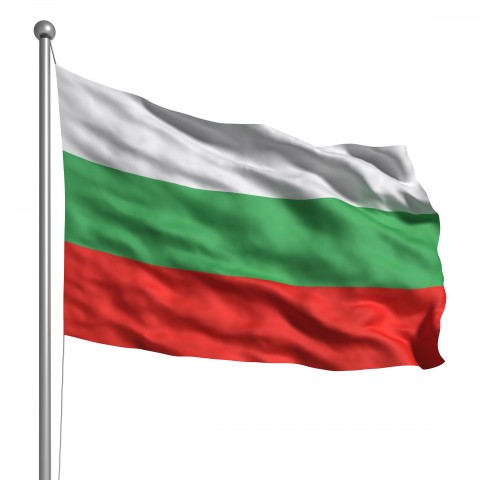
Bulgaria’s struggle for independence goes way back, beginning in the fourteenth century when the Ottomans began organizing attacks on various cities within the country. The Ottomans eventually gained control of the Bulgarian territory, forming what is now referred to as the Ottoman Yoke. Beginning in 1762, the Bulgarian Revival fought back against the Ottoman Rule. Still, the Ottoman Yoke lasted for roughly 500 years—until one of Bulgaria’s most defining moments occurred on March 3, 1878.
This was the date when the Liberation of Bulgaria took effect, following the signing of the Treaty of San Stefano, or Санстефански мирен договор (Sanstefanski miren dogovor). The treaty was signed in order to end the Russian-Turkish war. However, even after this momentous occasion, Bulgaria was considered a vassal state of the Ottoman Empire and thus did not have full freedom as a nation. The signing of this treaty is celebrated, however, because it marked the beginning of Bulgaria’s eventual rise to complete freedom and autonomy.
A few months later, on July 13, 1878, another treaty was signed: the Берлински договор (Berlinski dogovor), or Treaty of Berlin. This treaty gave Bulgaria further autonomy, though the nation would not gain full independence until 1908.
In Bulgaria, Liberation Day is viewed as one of the most important holidays, marking a key event in the nation’s history. The holiday has been celebrated unofficially since 1880 (when it was called Day of the Emperor Alexander II’s Assassination and the Conclusion of the San Stefano Peace Treaty—yes, it’s a mouthful). In 1888, it was shortened to Liberation Day of Bulgaria, and two years later was given official holiday status.
- → See our lessons Top 5 Dates During the Calendar Year and Top 5 Things You Need to Know About Bulgarian Society to gain more useful insight into Bulgarian culture and history!
2. Traditions for Bulgarian Liberation Day
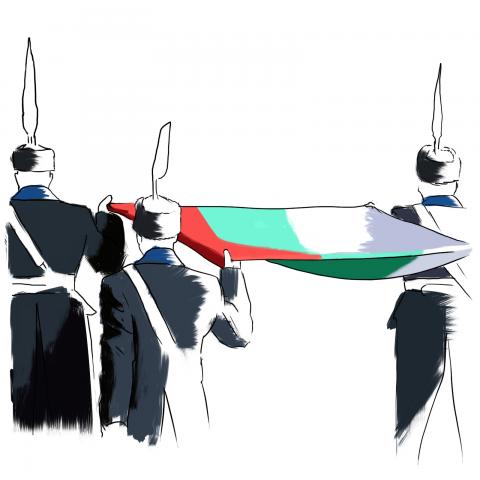
On National Liberation Day, Bulgarian workers can look forward to a full day off work. Due to the significance of the holiday, there’s an array of activities and celebrations throughout the nation, many of which vary by city. For example, in cities where historical battles were held, there may be larger observances or activities that are more focused on that specific battle. Wherever you go, the Bulgarian flag will be hoisted high!
There are several speeches, parades, concerts, and other cultural celebrations put on by the government, some of which are attended by the Bulgarian President and city mayors, as well as other government officials. One of the most popular events is the nighttime fireworks show at the National Assembly Square.
Numerous lives were lost in Bulgaria’s long fight for freedom, so there are wreath layings at various memorials throughout the nation. People may also leave flowers or cards to show respect for those who gave their lives. Because other nations aided in Bulgaria’s liberation, the focus is not only on Bulgarian heroes, but on those of Russia, Finland, and Romania. (In fact, the Russian President often takes part in the Liberation Day observances.)
The Bulgarian Orthodox Church hosts a liturgy and prayer event, commemorating the events leading up to the nation’s liberation. There are also masses that take place.
Two key locations for this holiday are the Shipka Monument and Shipka Pass. The latter is where a major battle took place, and people gather there in large groups in memory of it.
To conclude, here’s a rather unique tradition: On the Day of Liberation, Bulgarian men swim across the Danube River to Romania’s coast. This is because Svishtov (located near the Romanian border) was the first city to be liberated.
3. Another Key Event in Bulgarian History
While the liberation of Bulgaria in 1878 was a major turning point in the right direction, there was another event that occurred a few years later that aided Bulgaria on its road to freedom.
This event was the joining of Източна Румелия (Iztochna Rumeliya), or Eastern Rumelia (one of the three parts into which Bulgaria was divided), with liberated Bulgaria. It occurred in 1885, and created yet another stepping stone toward the nation’s independence. To commemorate this event, Bulgarians celebrate Unification Day each year.
4. Key Bulgarian Vocabulary for Liberation Day
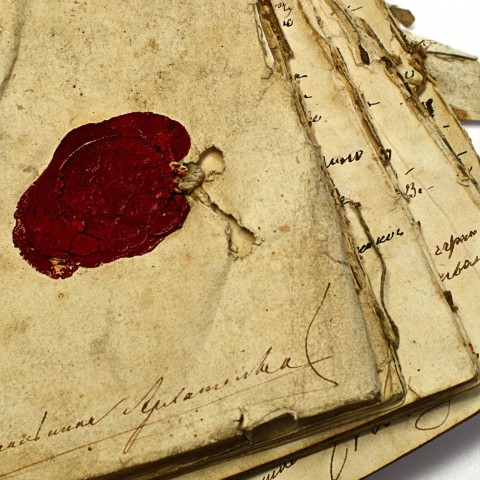
Ready to stretch your Bulgarian vocabulary skills and expand your mental word bank? Then study up on these useful phrases and be sure to practice their pronunciation on our Liberation Day vocabulary list!
Ден на Освобождението на България от турско робство / noun, masculine
Den na Osvobojdenieto na Bylgariya ot tursko robstvo
Liberation Day
Източна Румелия / noun, feminine
Iztochna Rumeliya
Eastern Rumelia
Санстефански мирен договор / noun, masculine
Sanstefanski miren dogovor
Treaty of San Stefano
Берлински договор / noun, masculine
Berlinski dogovor
Treaty of Berlin
Подписвам договор / phrase
Podpisvam dogovor
Sign a treaty
Възстановяване на българската държавност / phrase, neutral
Vazstanovyavane na balgarskata darzhavnost
Recovery of the Bulgarian state
Княжество България / noun, neutral
Knyazhestvo Balgariya
Principality of Bulgaria
Национален празник / noun, masculine
Natsionalen praznik
National holiday
Церемония / noun, feminine
Tseremoniya
Ceremony
Празнуване / noun, neutral
Praznuvane
Celebration
Final Thoughts
Bulgaria’s Day of Liberation marks one of a few key events in the nation’s centuries-long struggle for autonomy and independence. We hope that learning about this holiday and its background has given you a craving for even more knowledge on Bulgarian culture and holidays!
To continue your Bulgarian studies, we recommend you check out the following pages on BulgarianPod101.com:
- St. Trifon Day: Celebrating the Patron Saint of Wine
- Bulgarian Holiday for the Glagolitic & Cyrillic Alphabet
- How to Celebrate the Feast Day of Prophet Elijah in Bulgaria
- Baba Marta: Celebrating Grandma March Day in Bulgaria
- Essential Vocabulary for Life Events in Bulgarian
If you sample our content and like what you find, remember that you can create your free lifetime account at any time! This will give you access to tons of lessons for learners at every level, our flagship podcast, spaced repetition flashcards, and much more!
It’s our goal to make learning Bulgarian both fun and effective, so what are you waiting for?
Before you go: Does your nation have a holiday similar to Liberation Day? If so, how do you celebrate?













